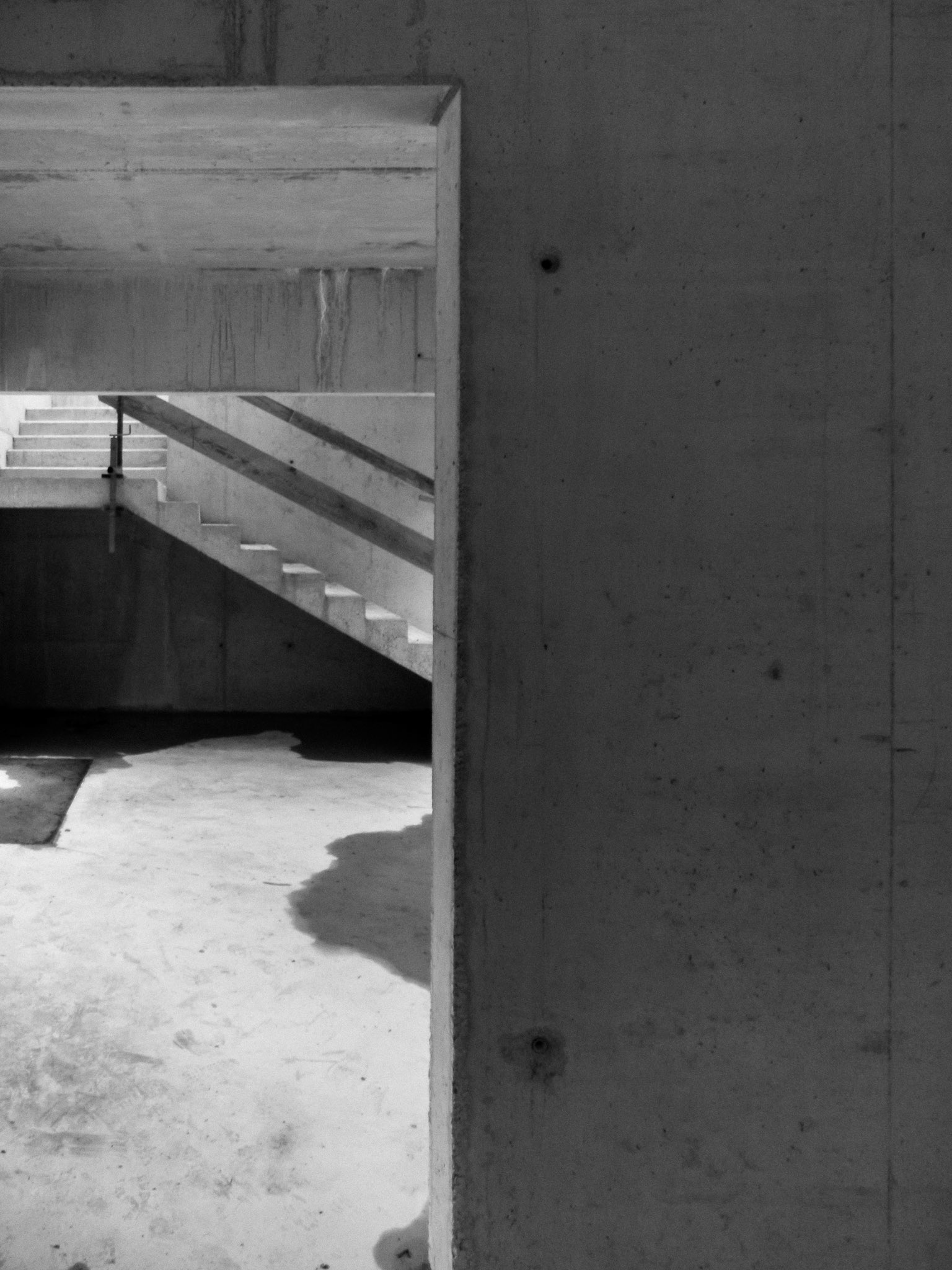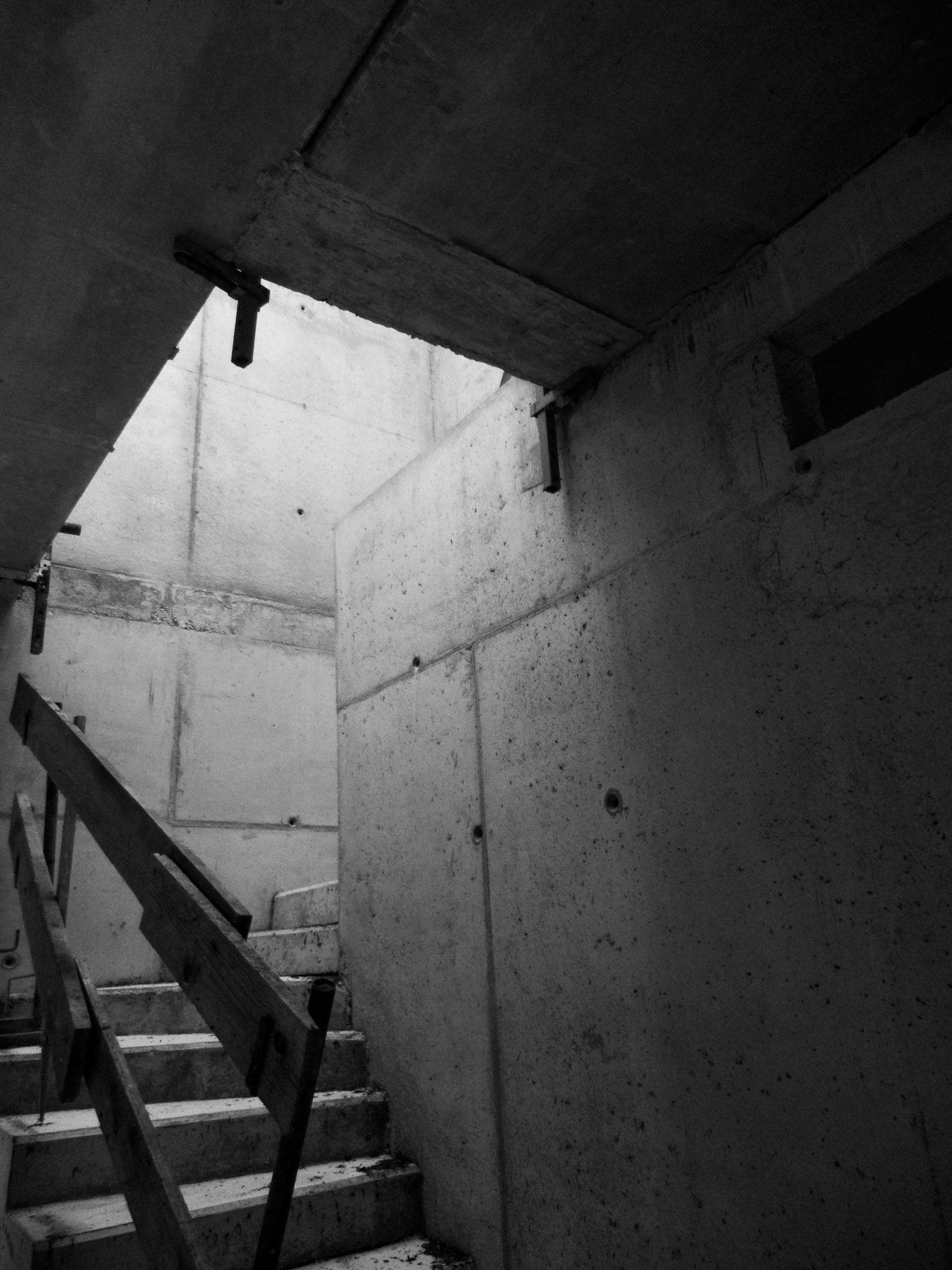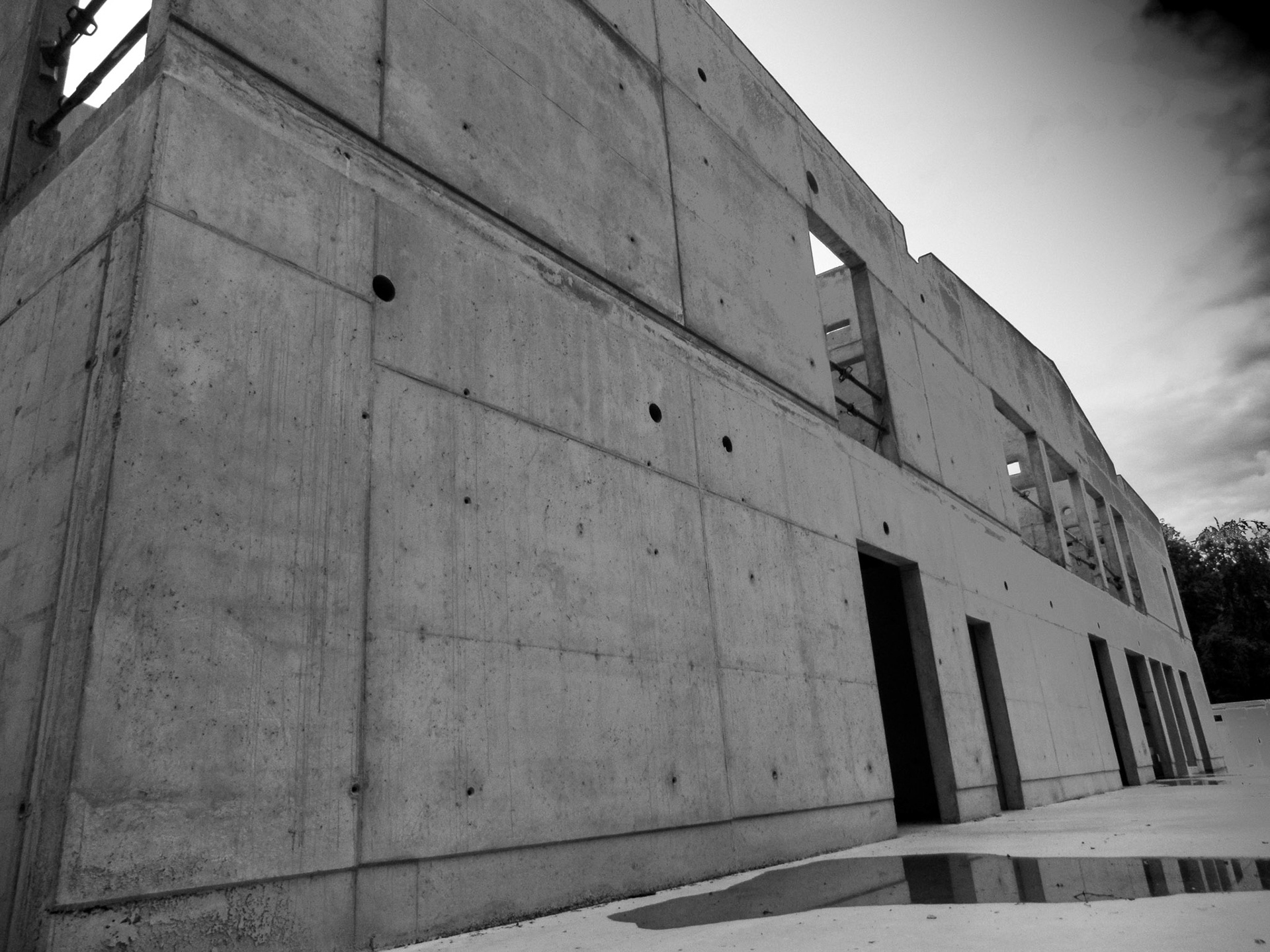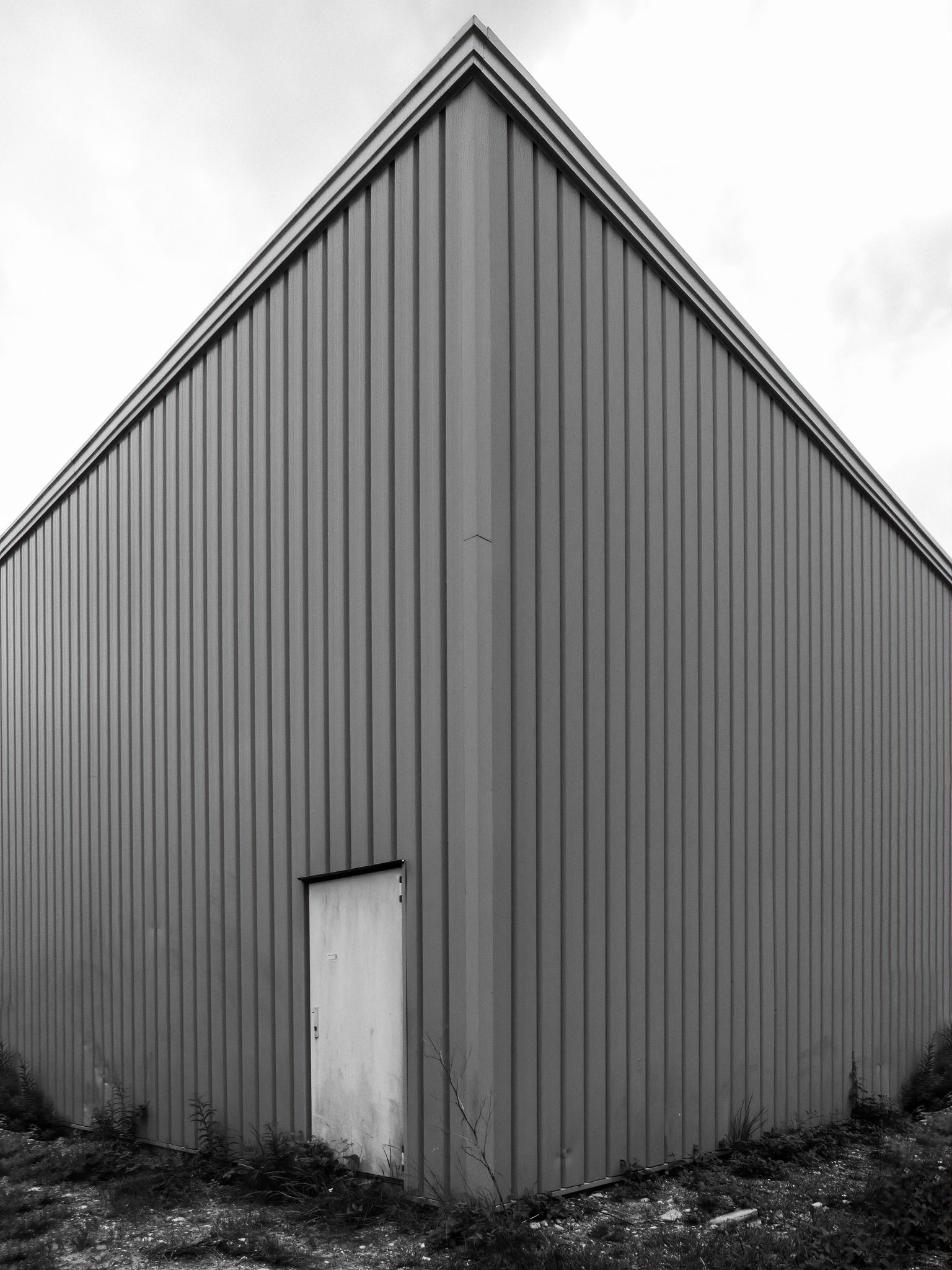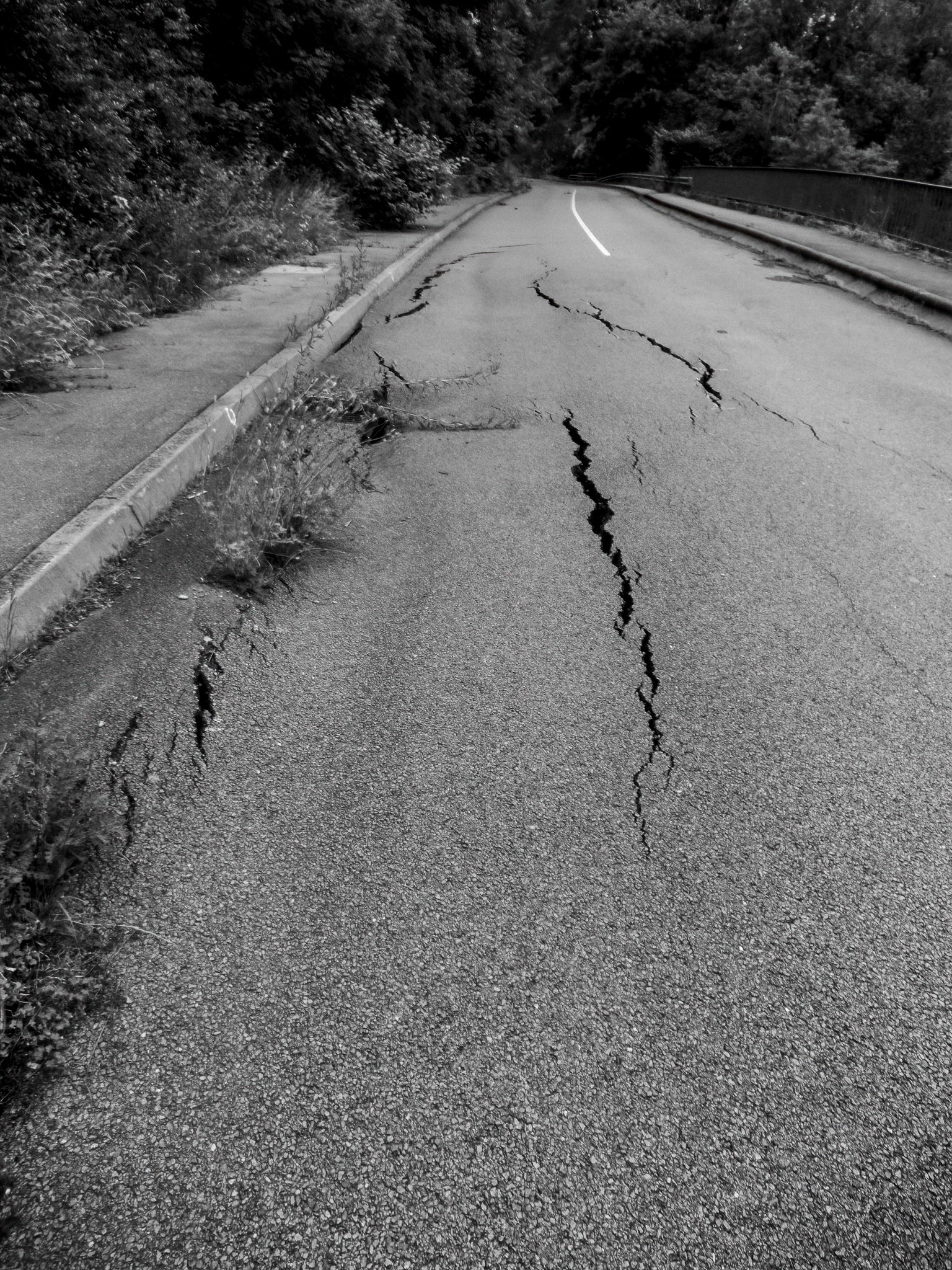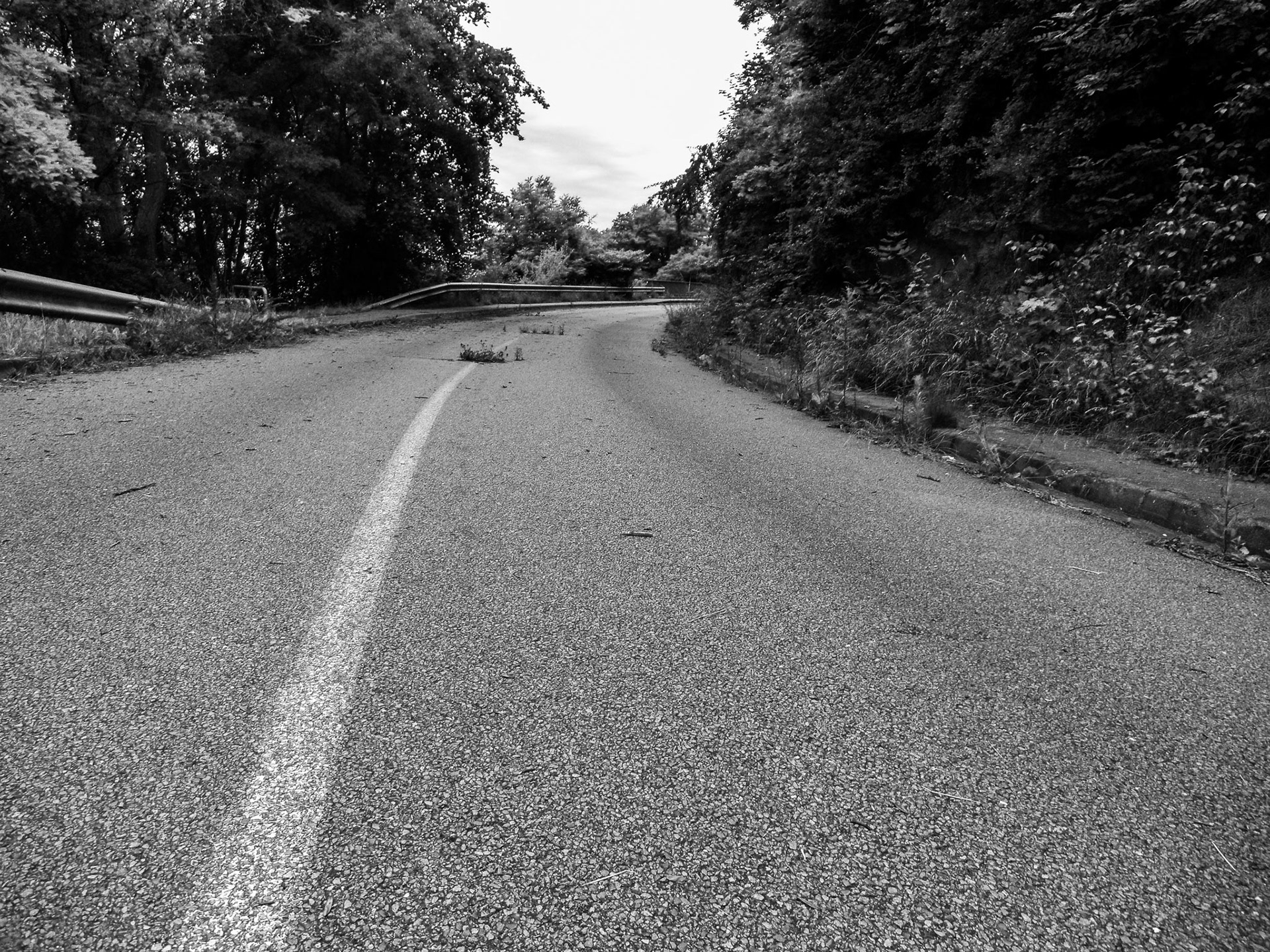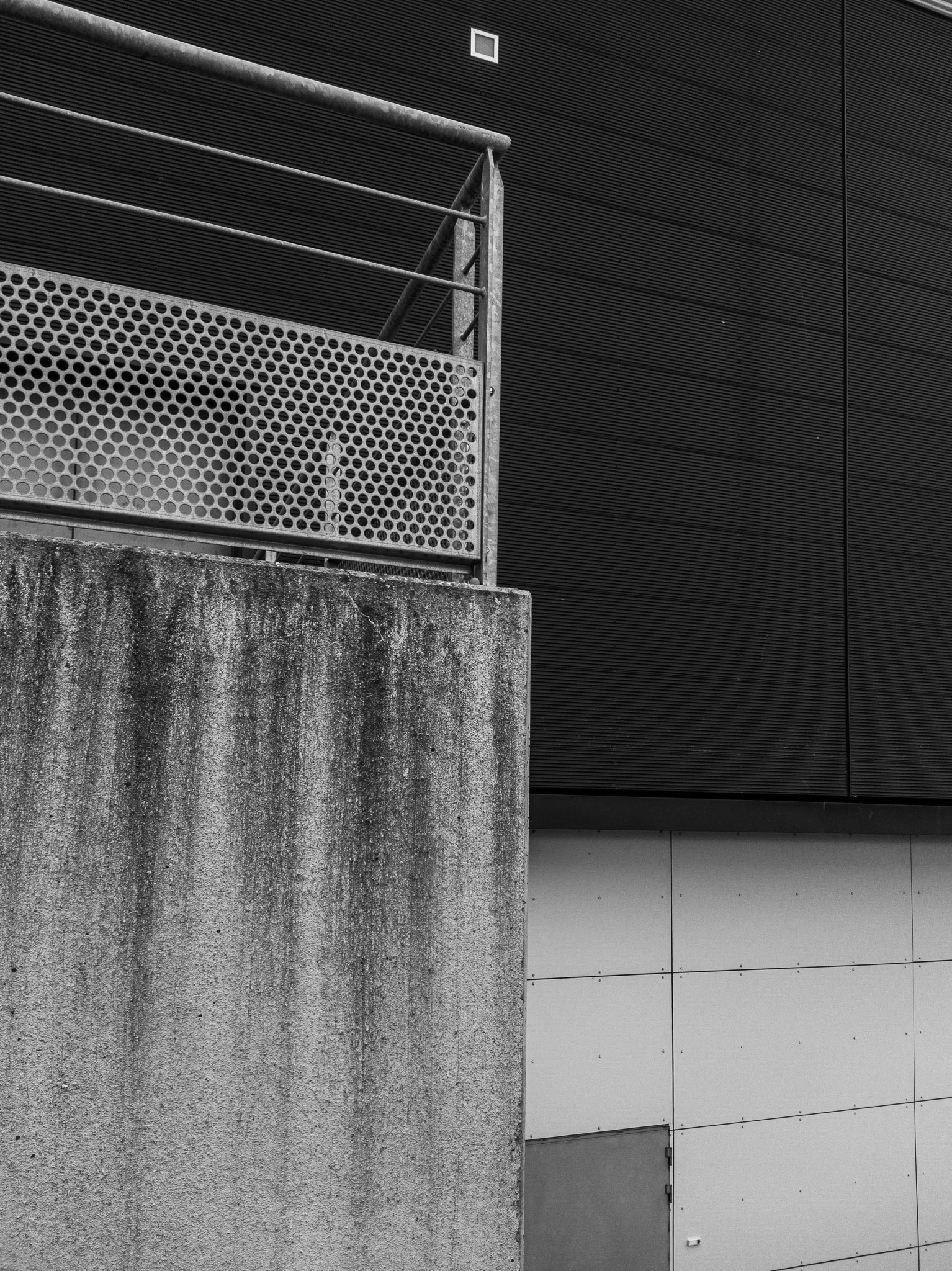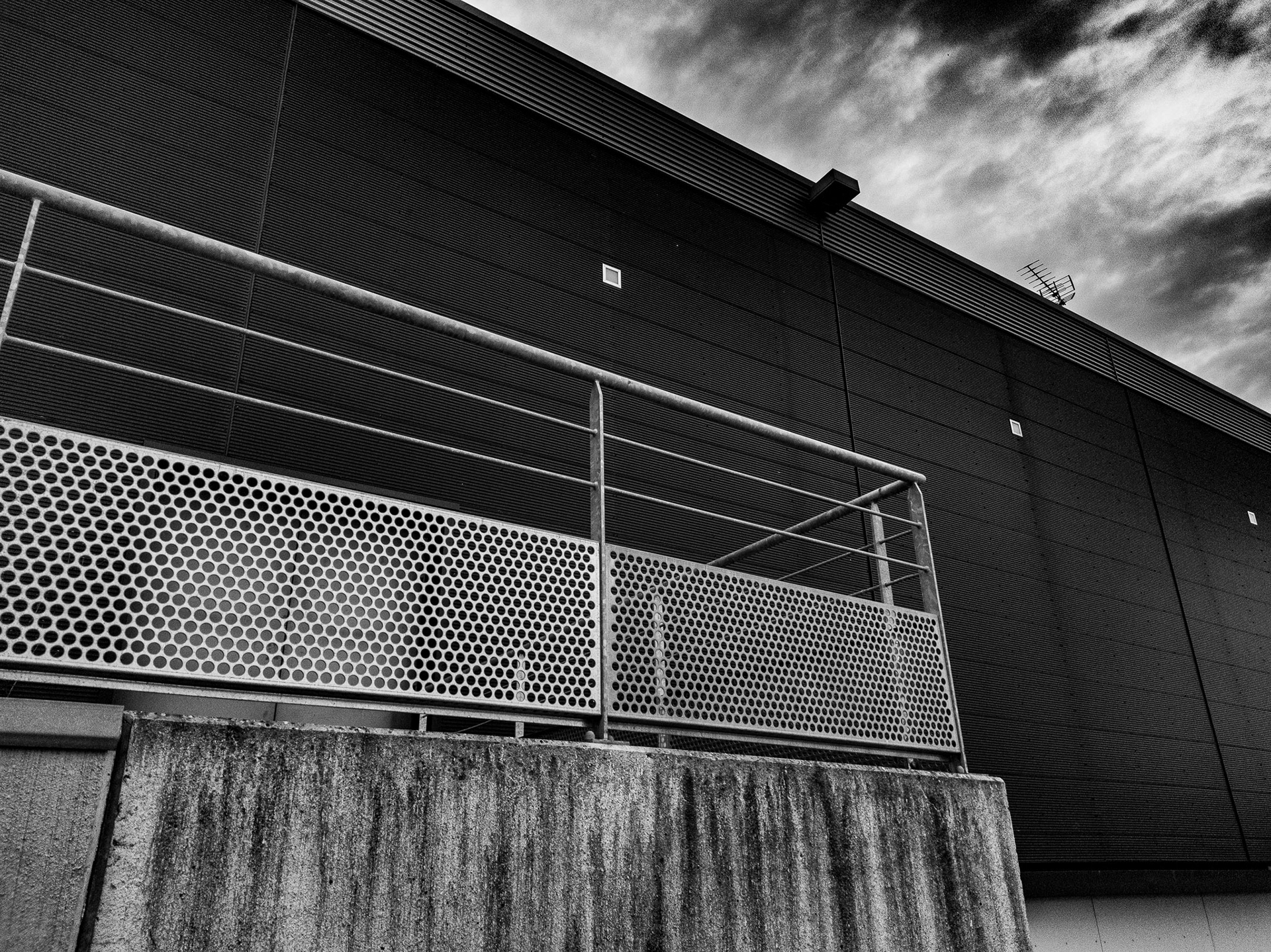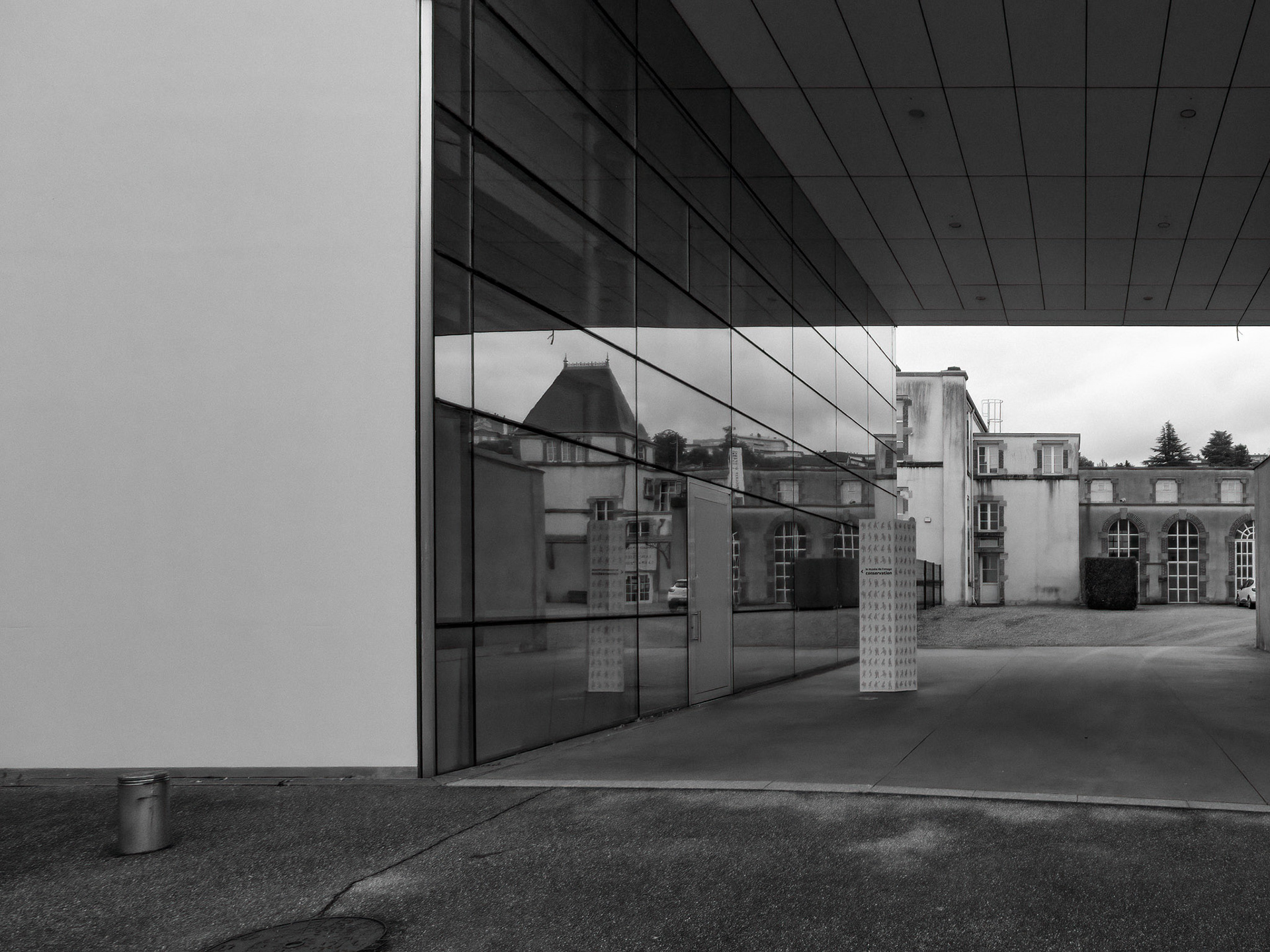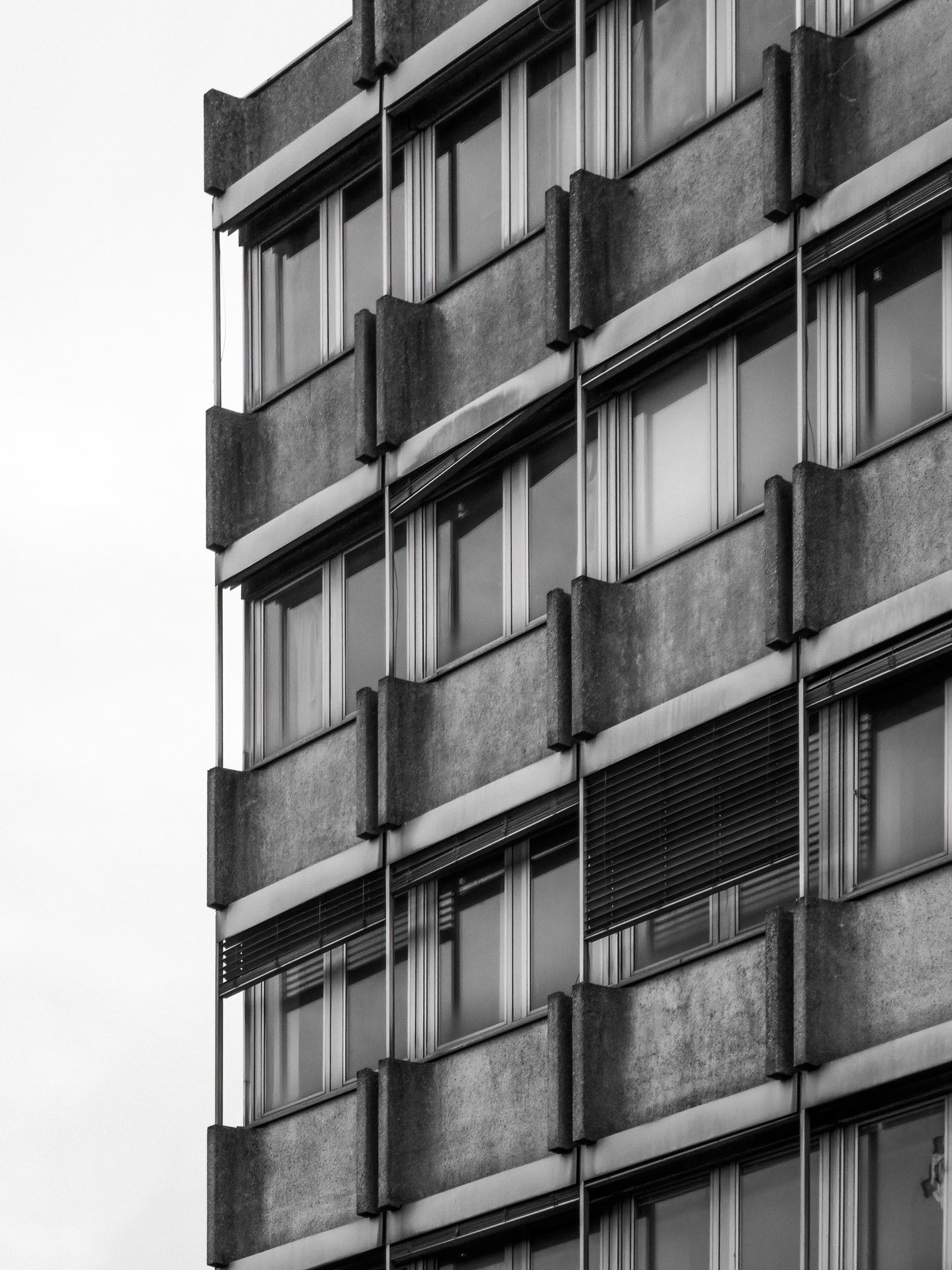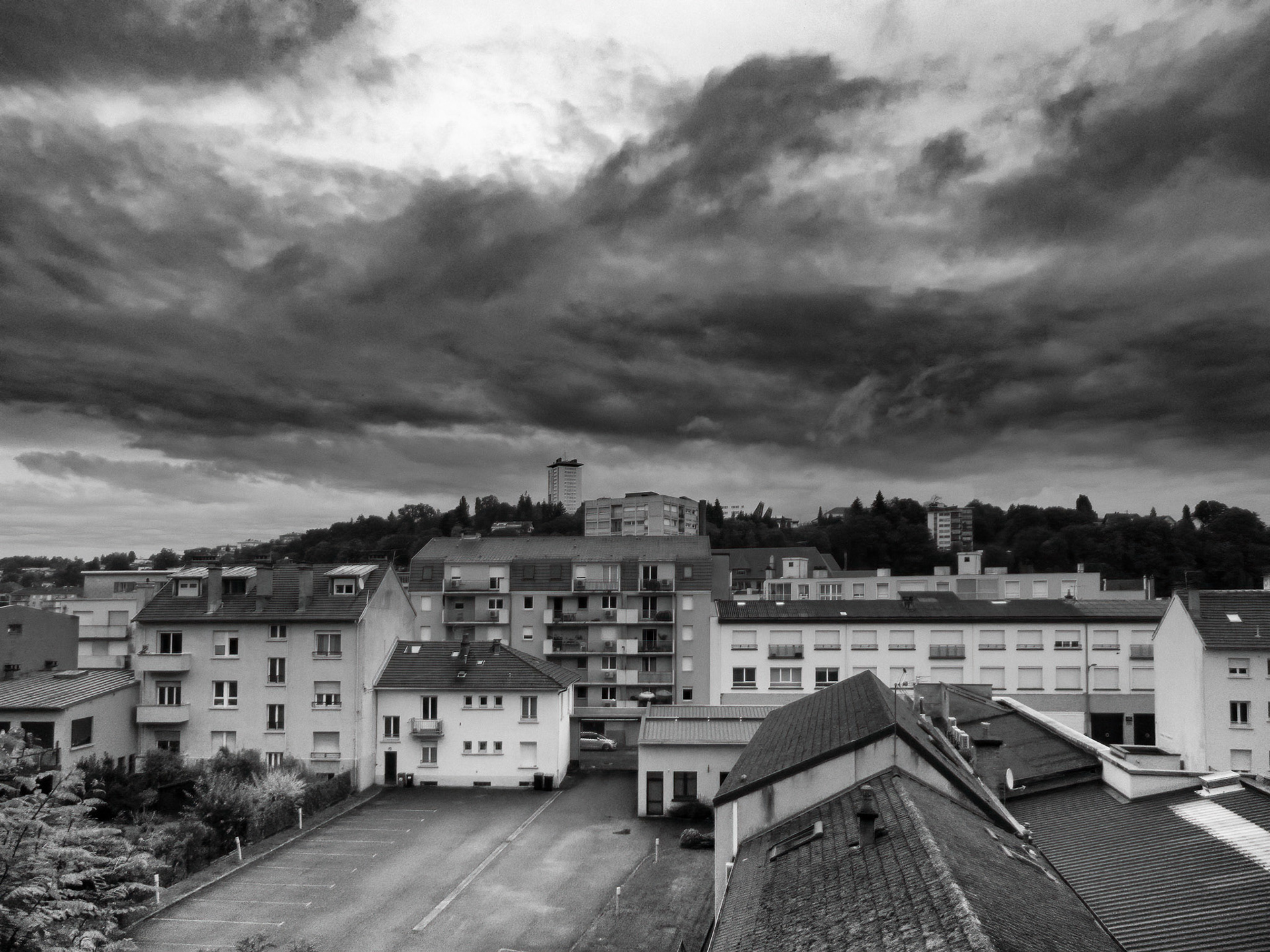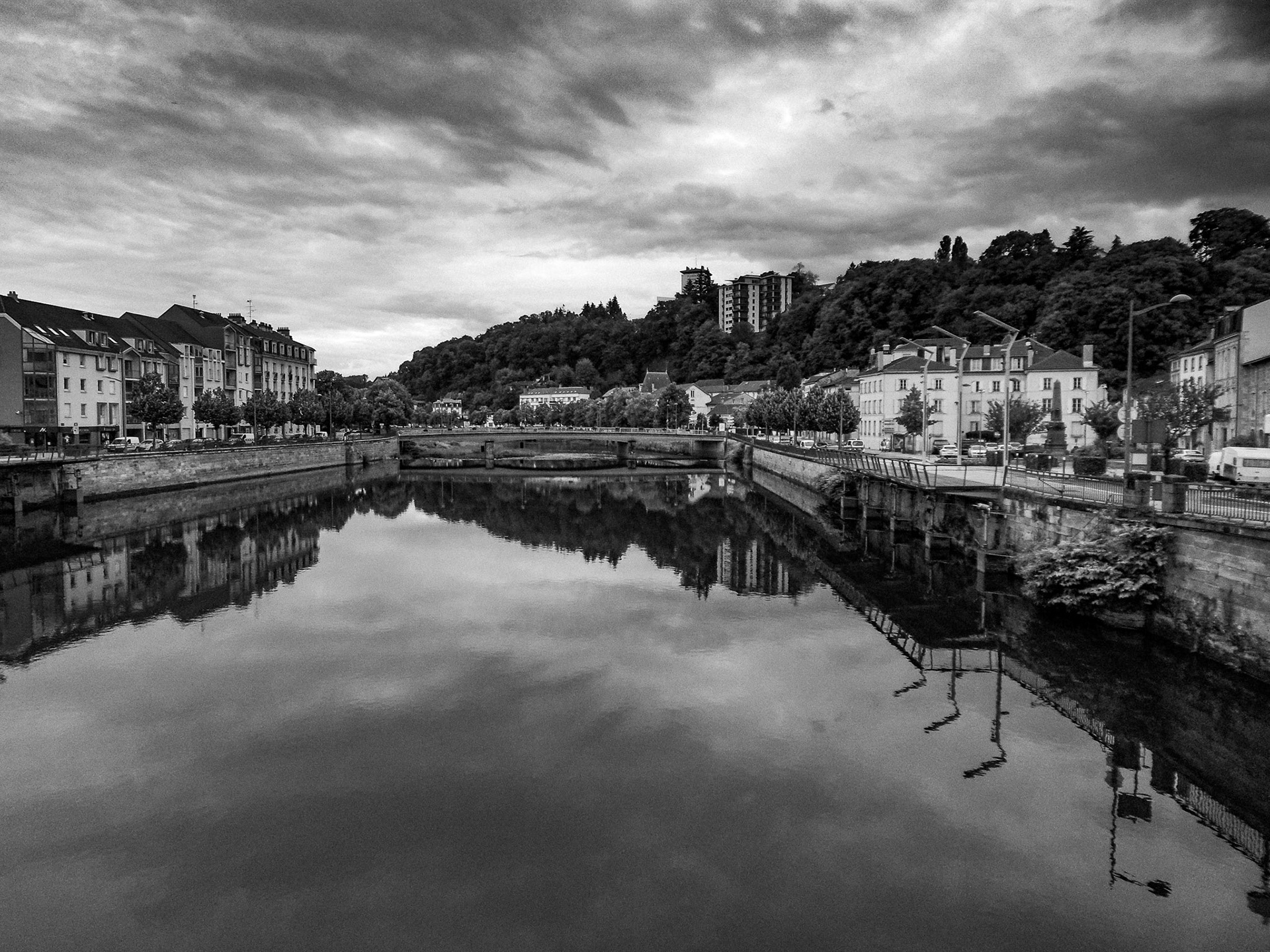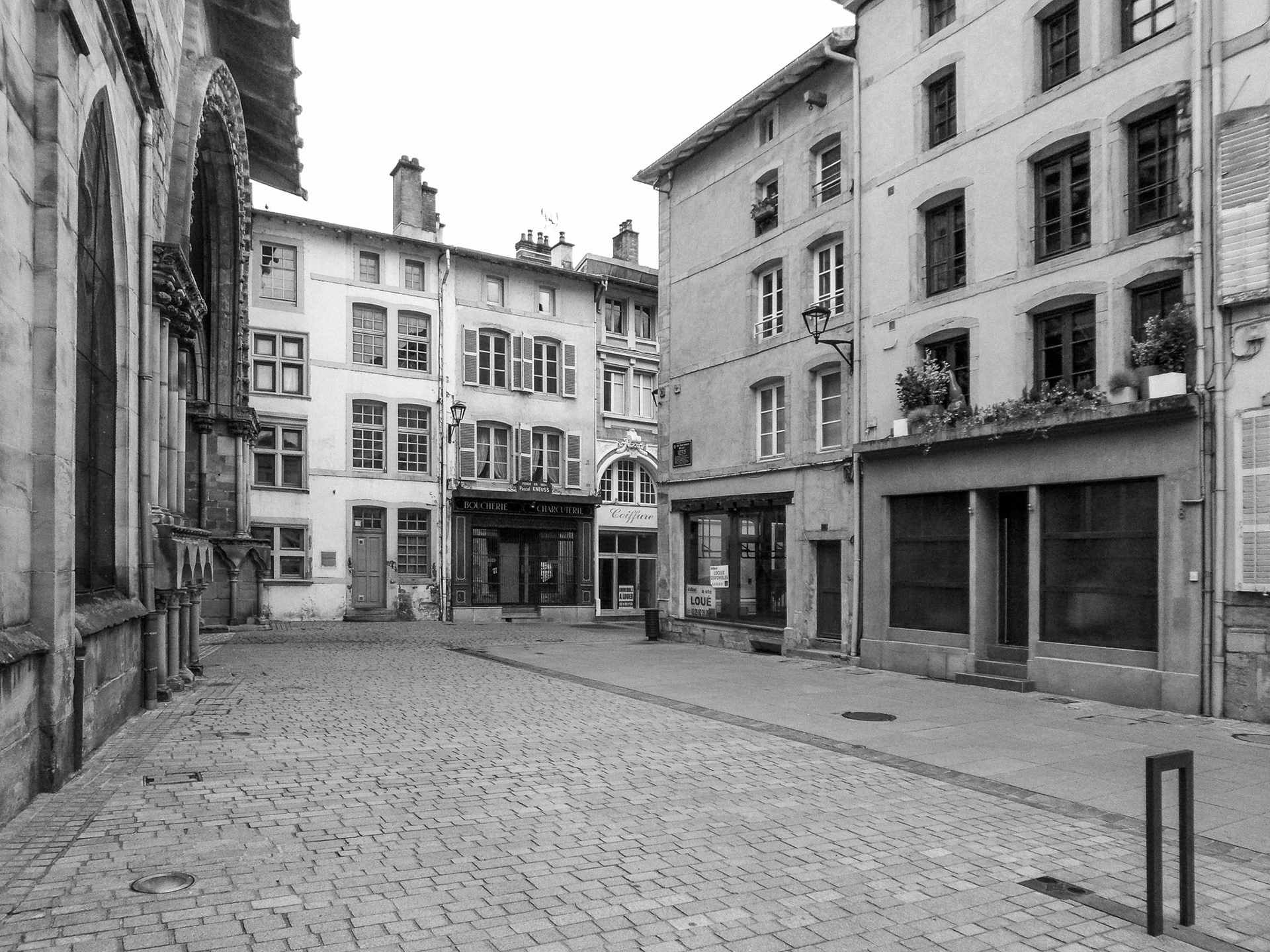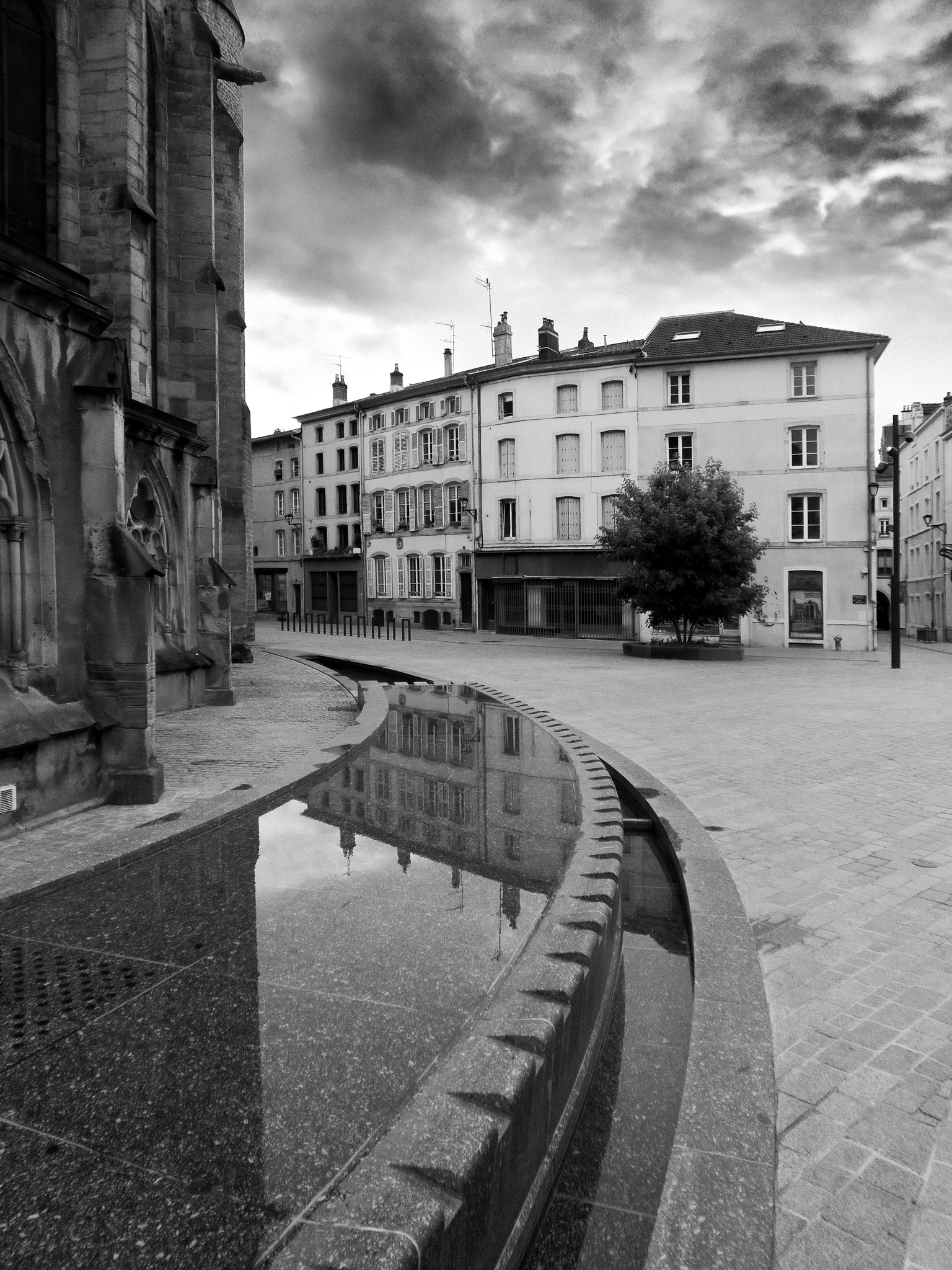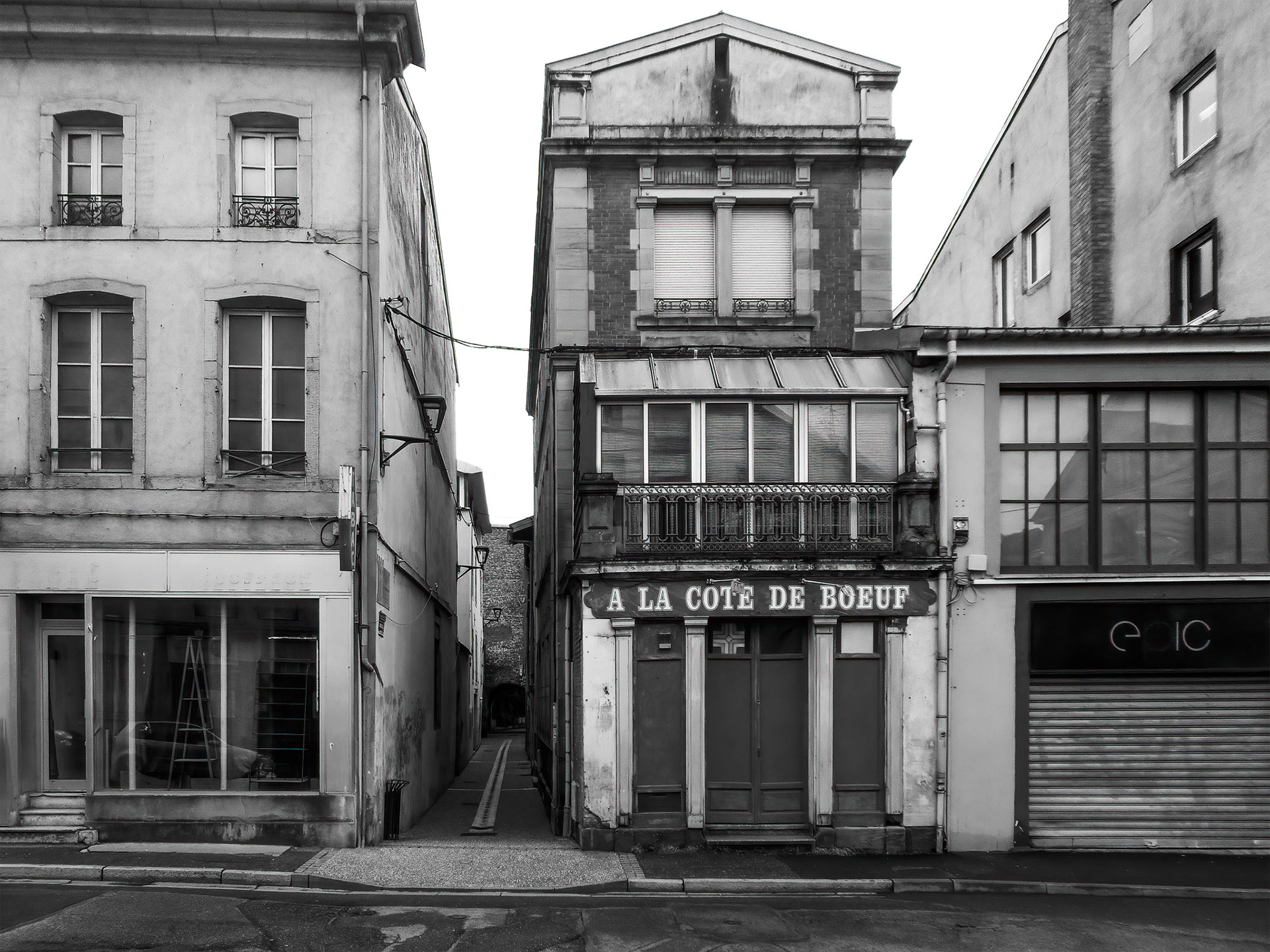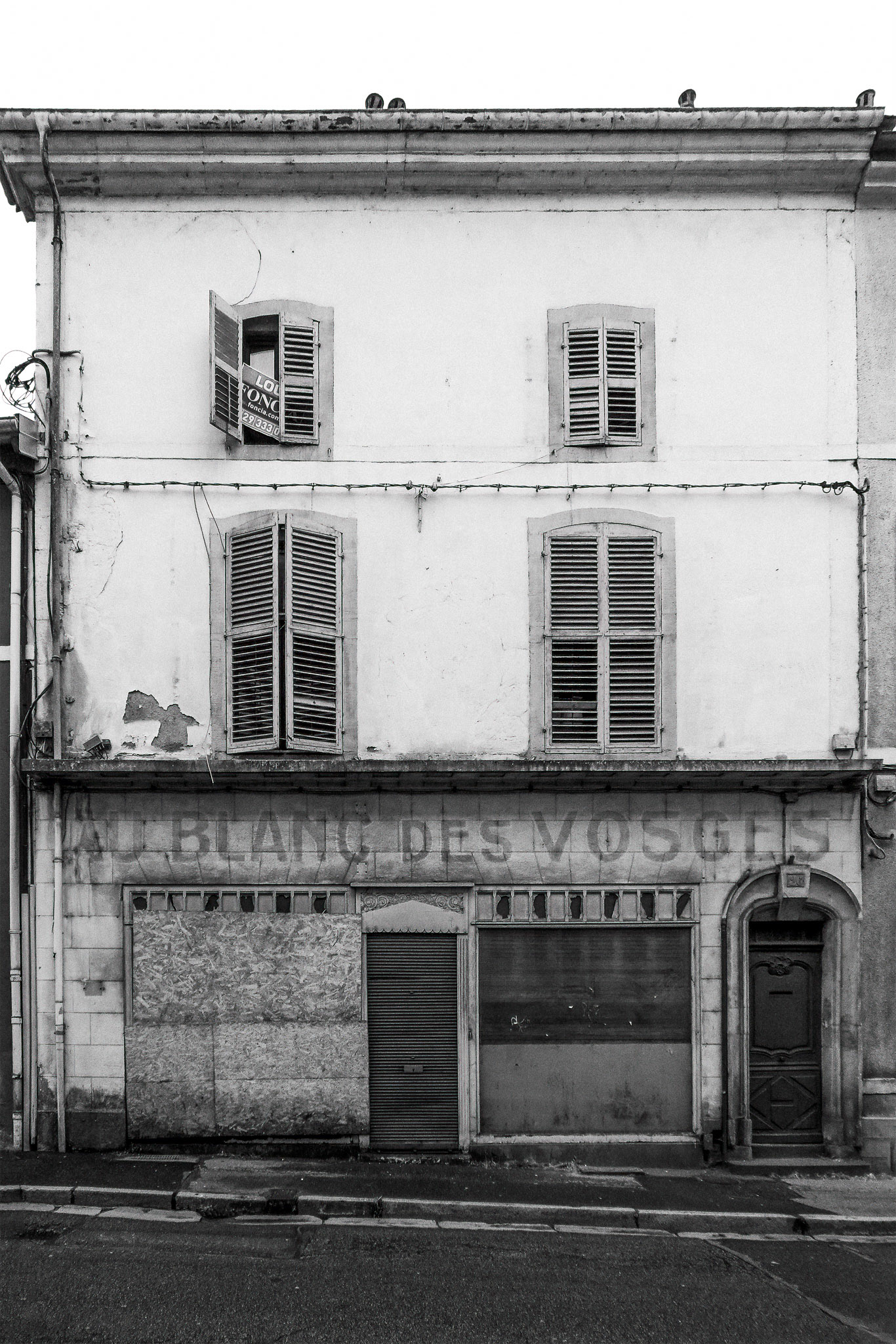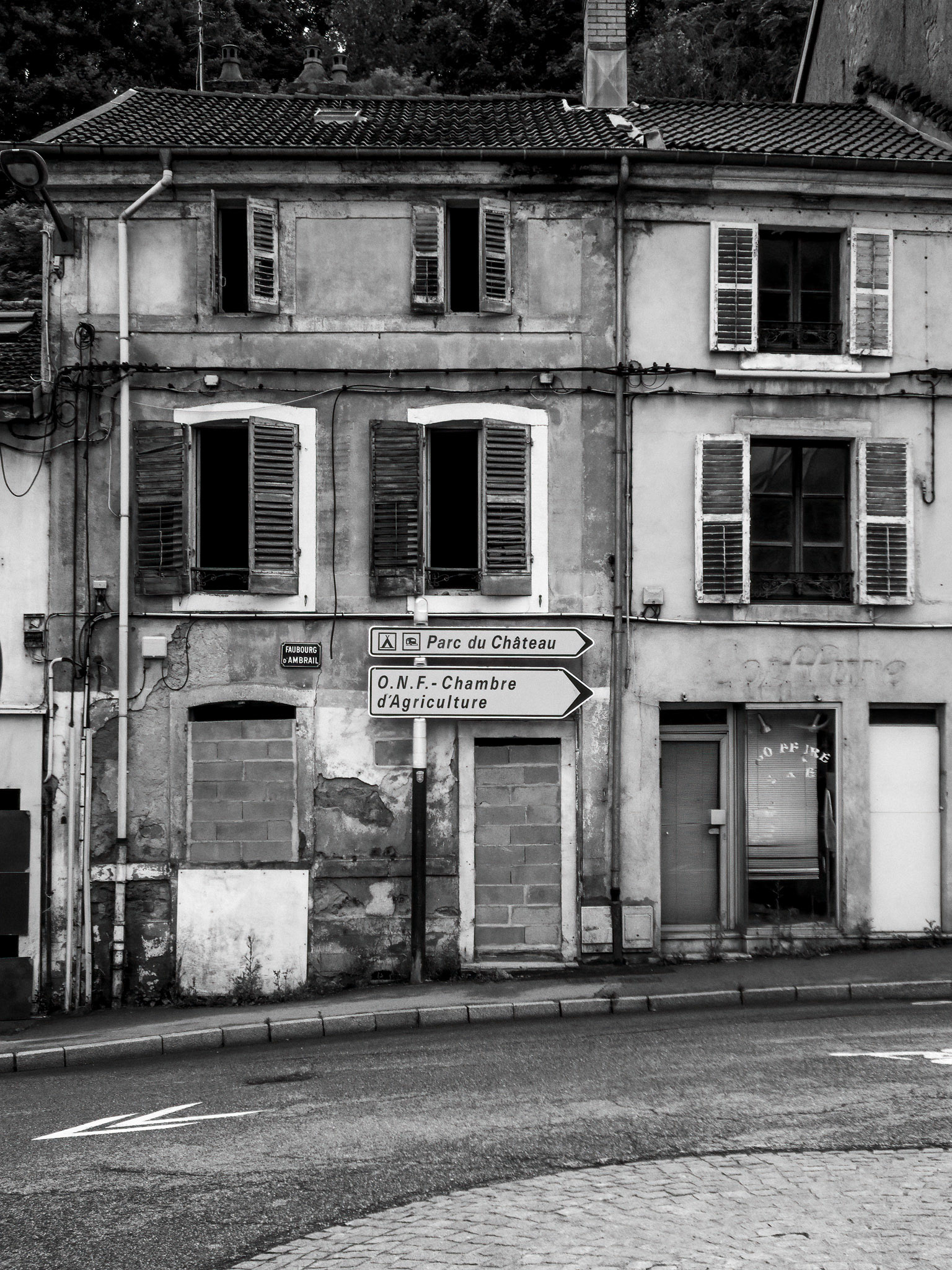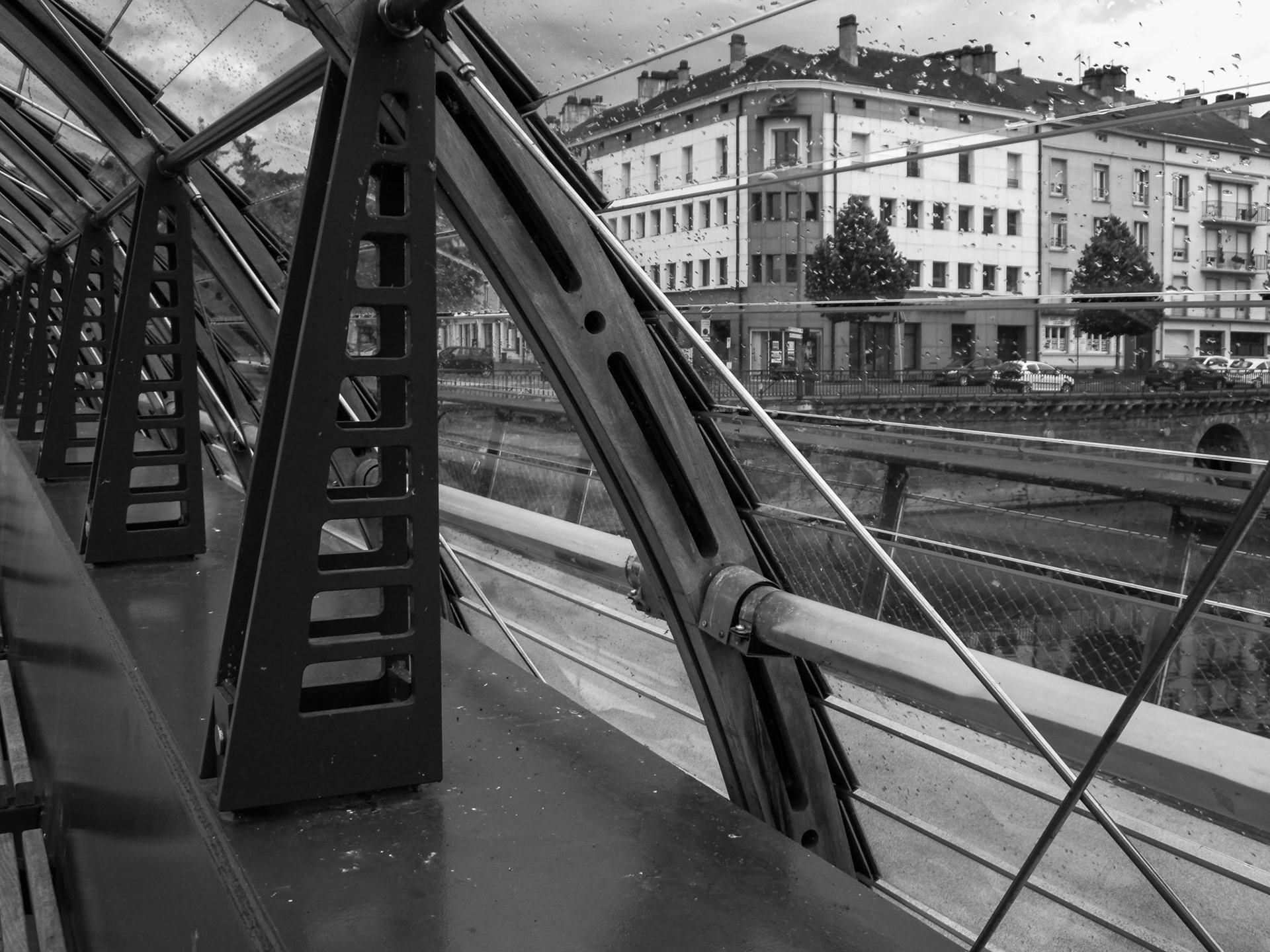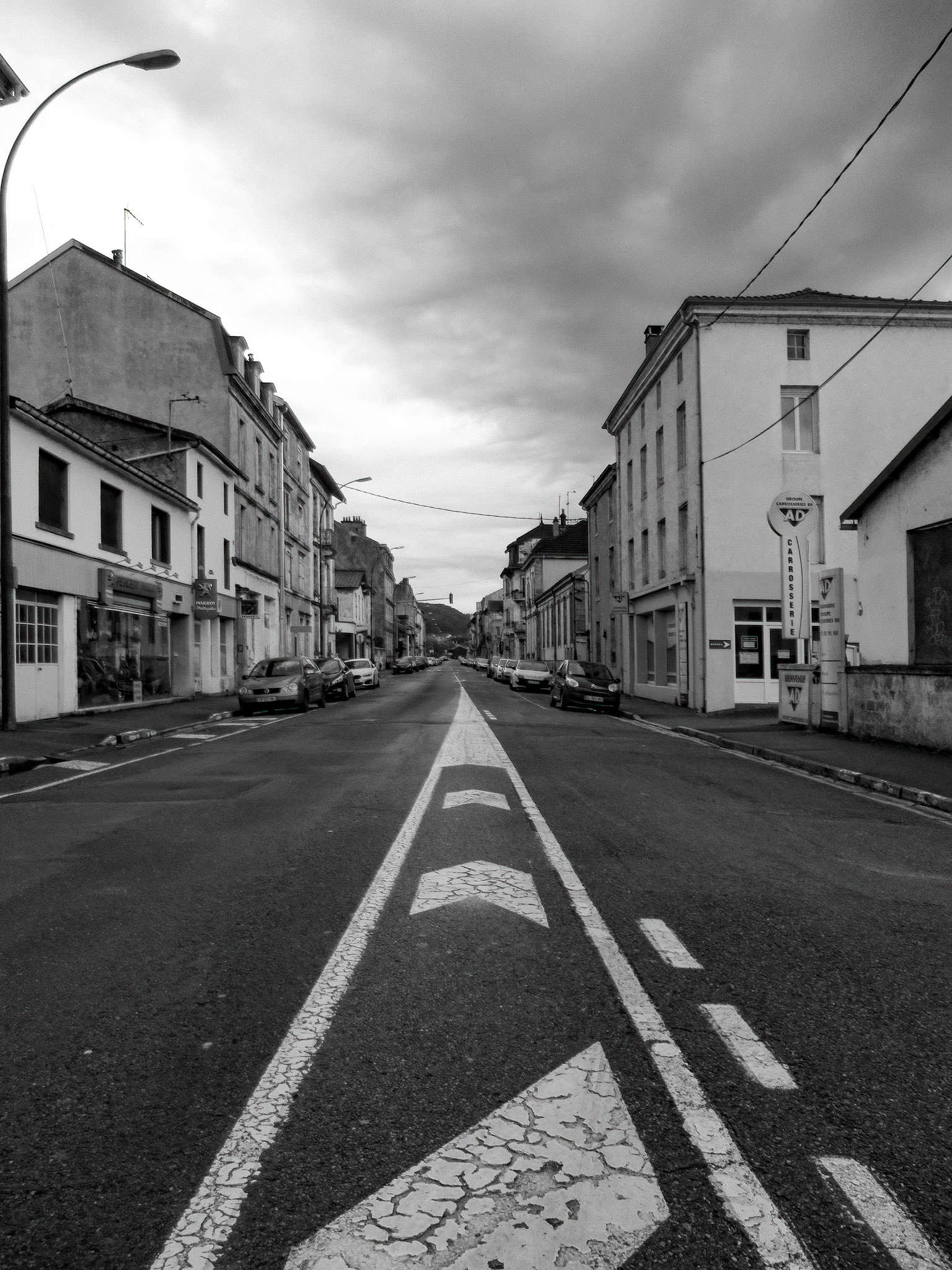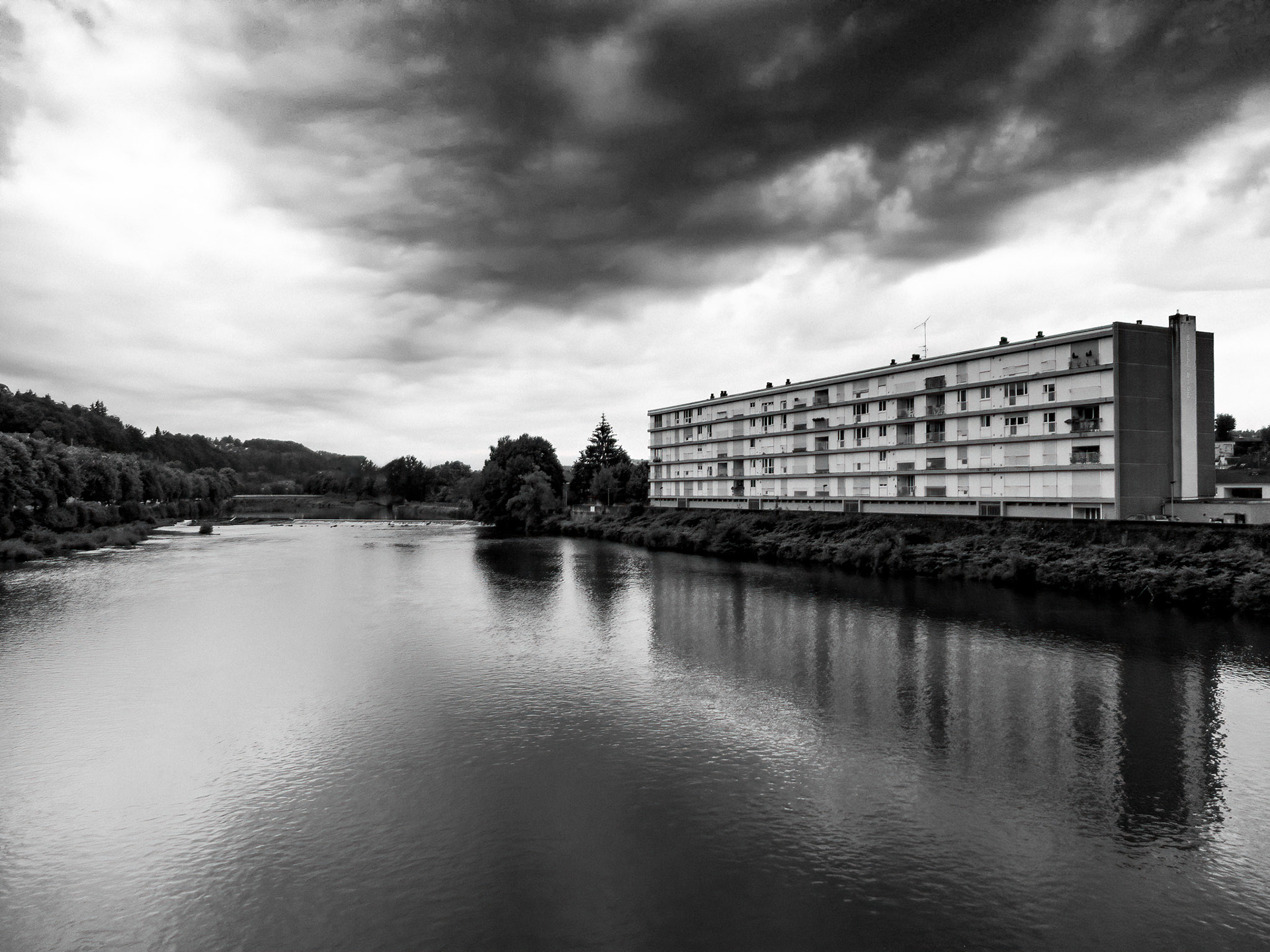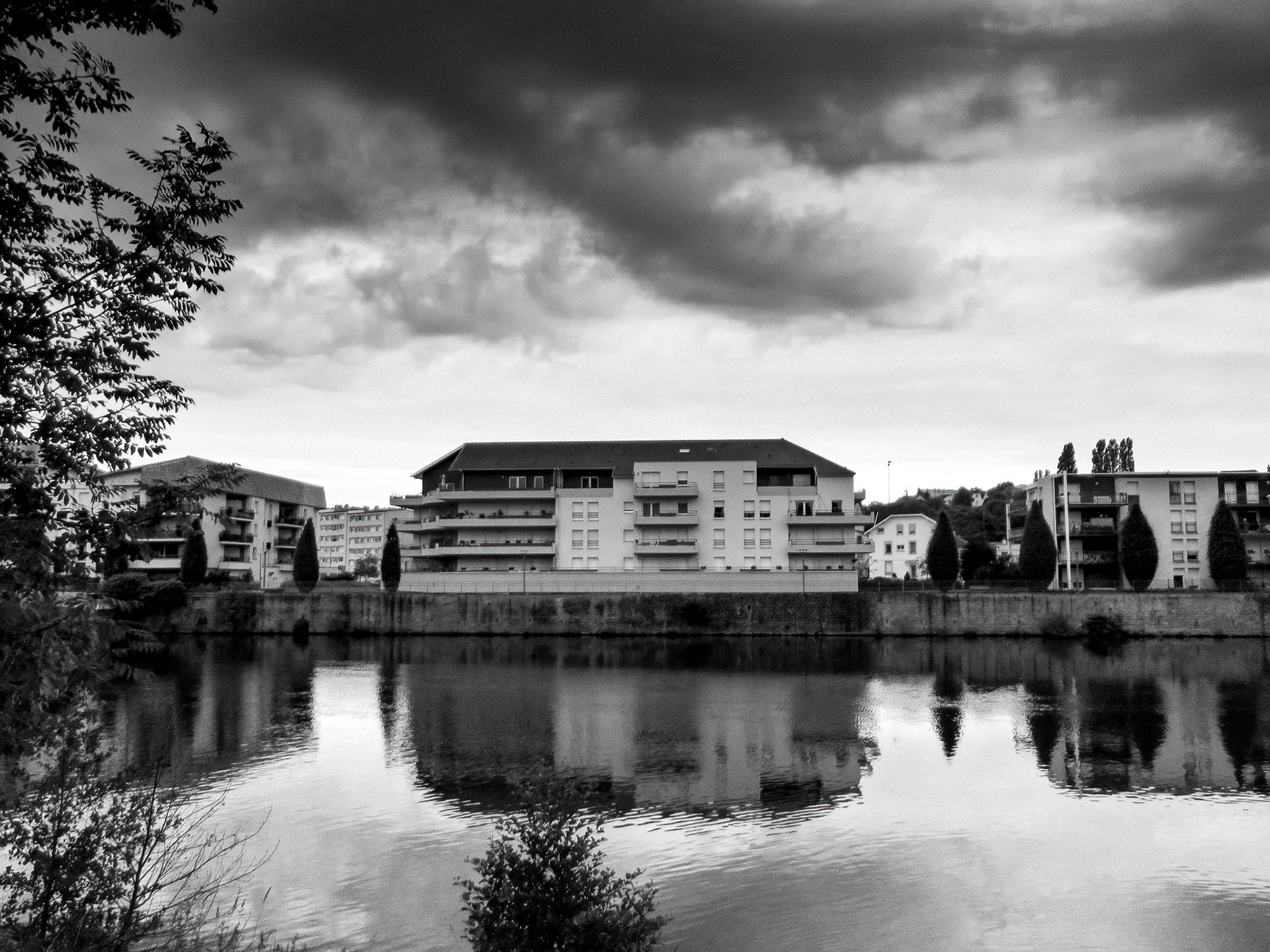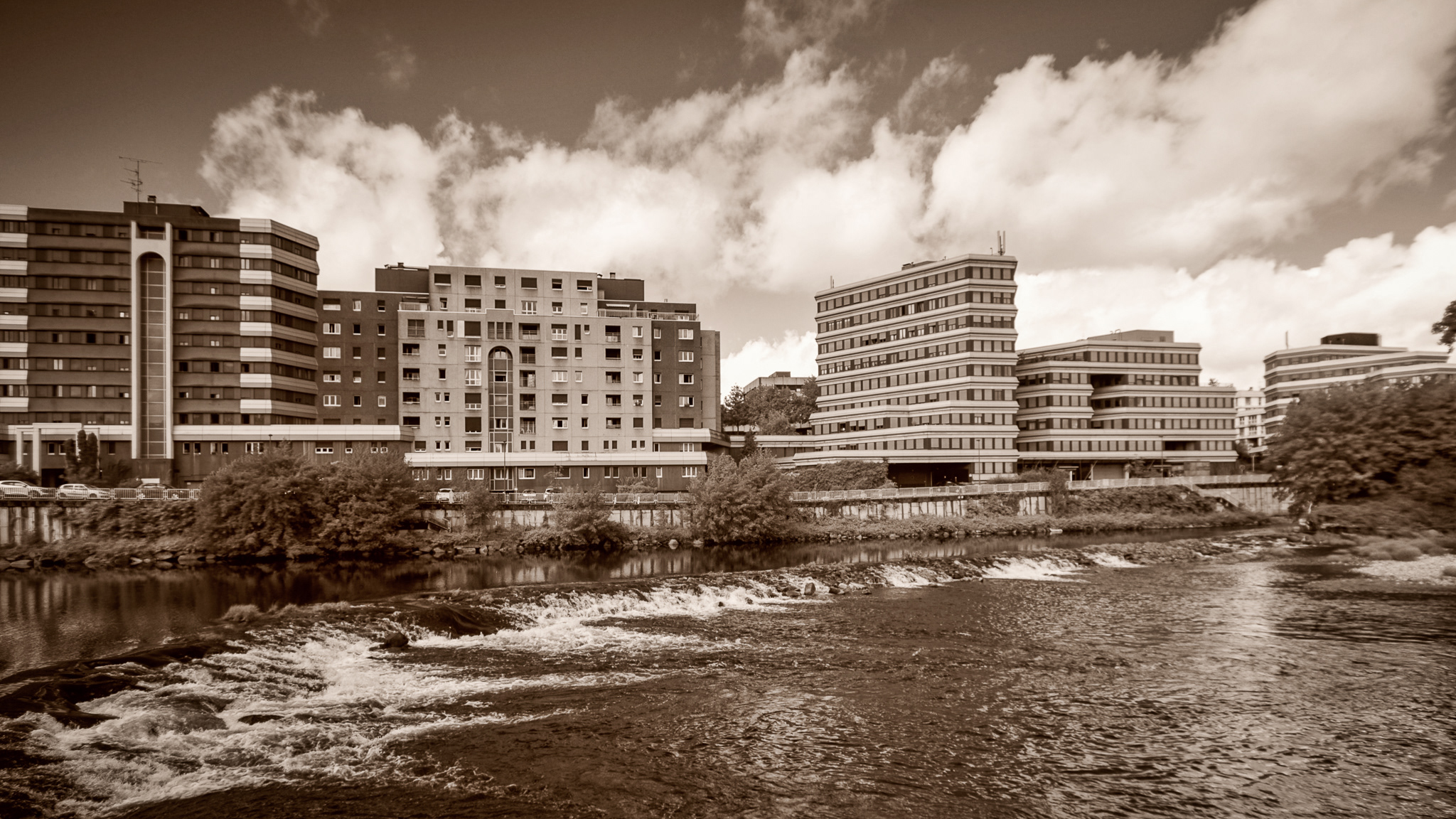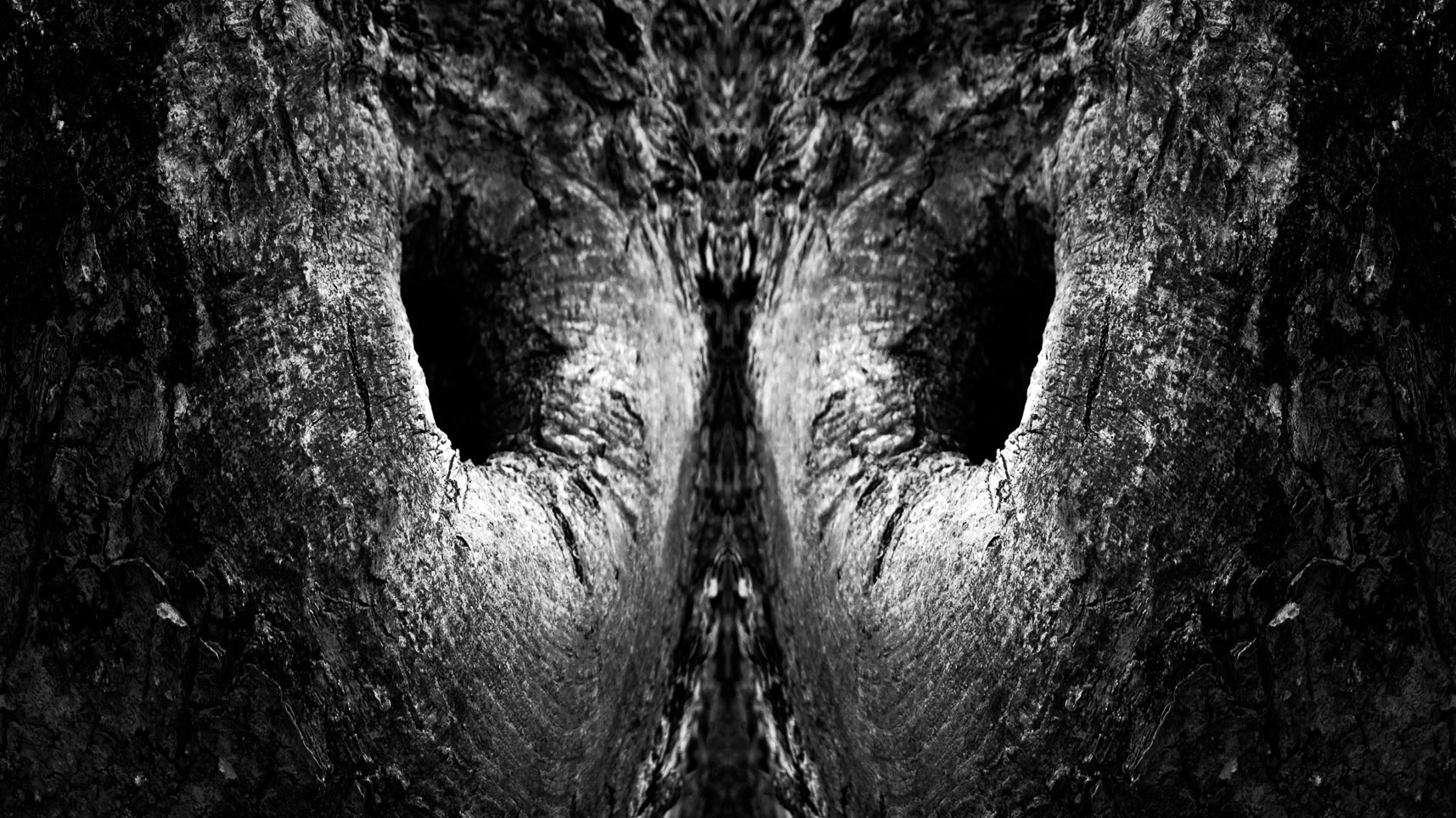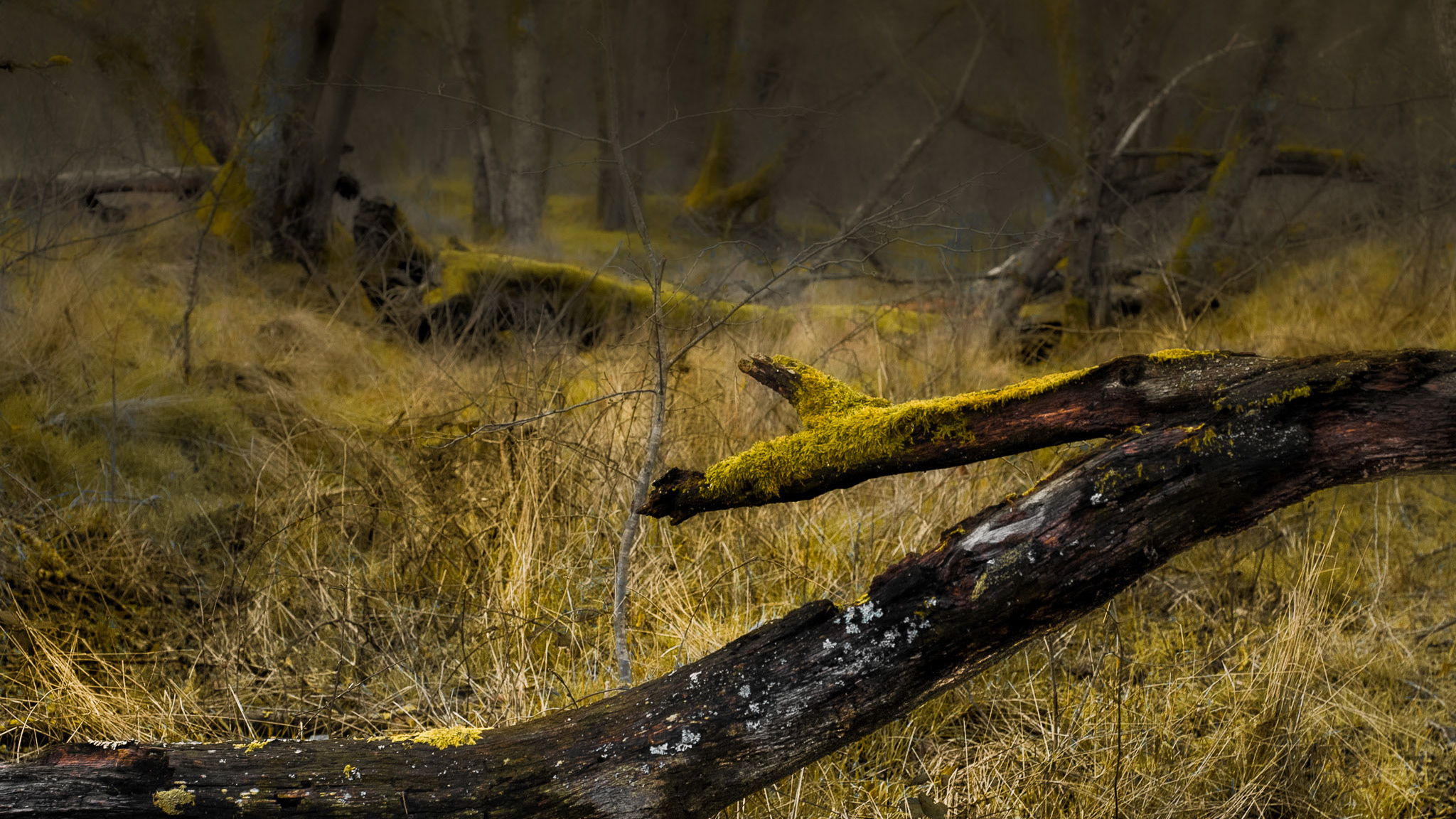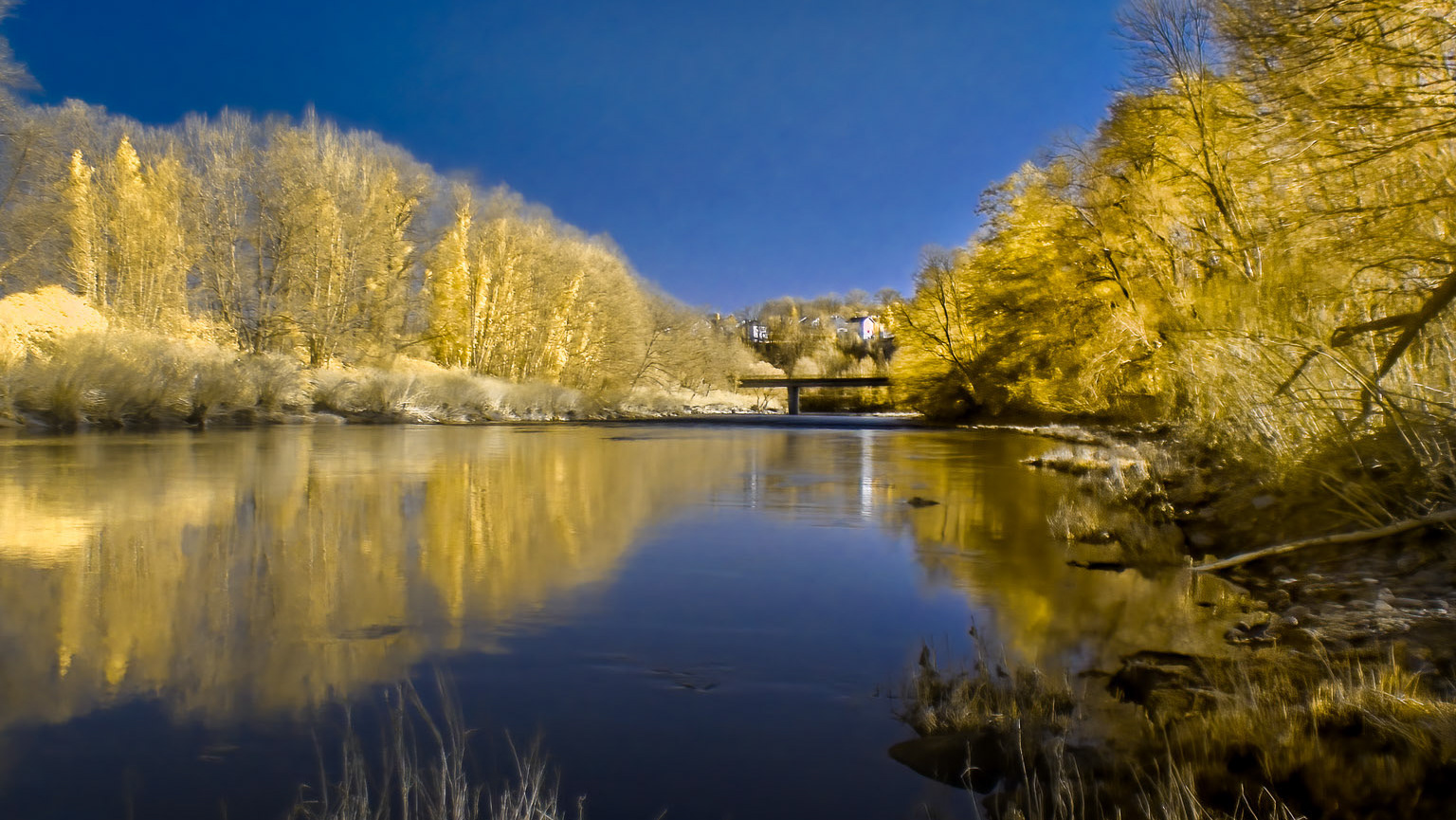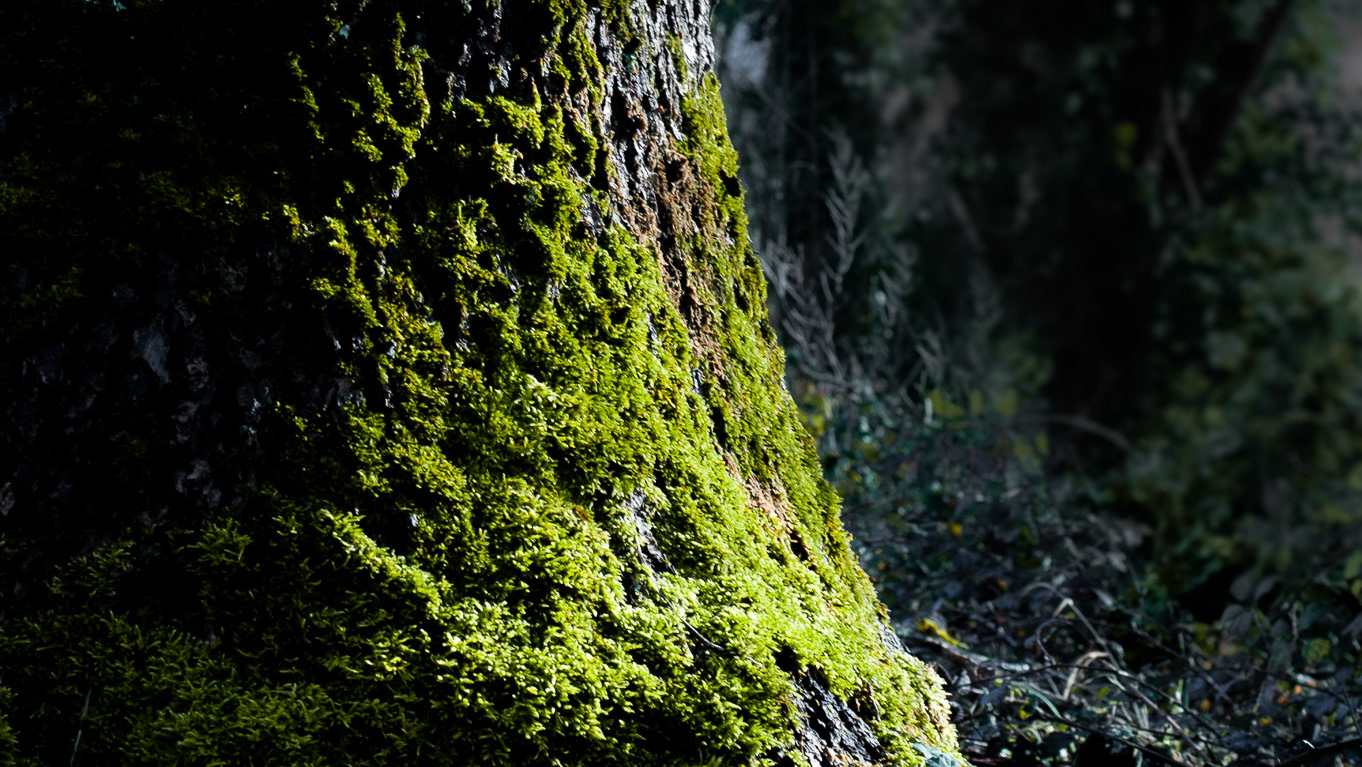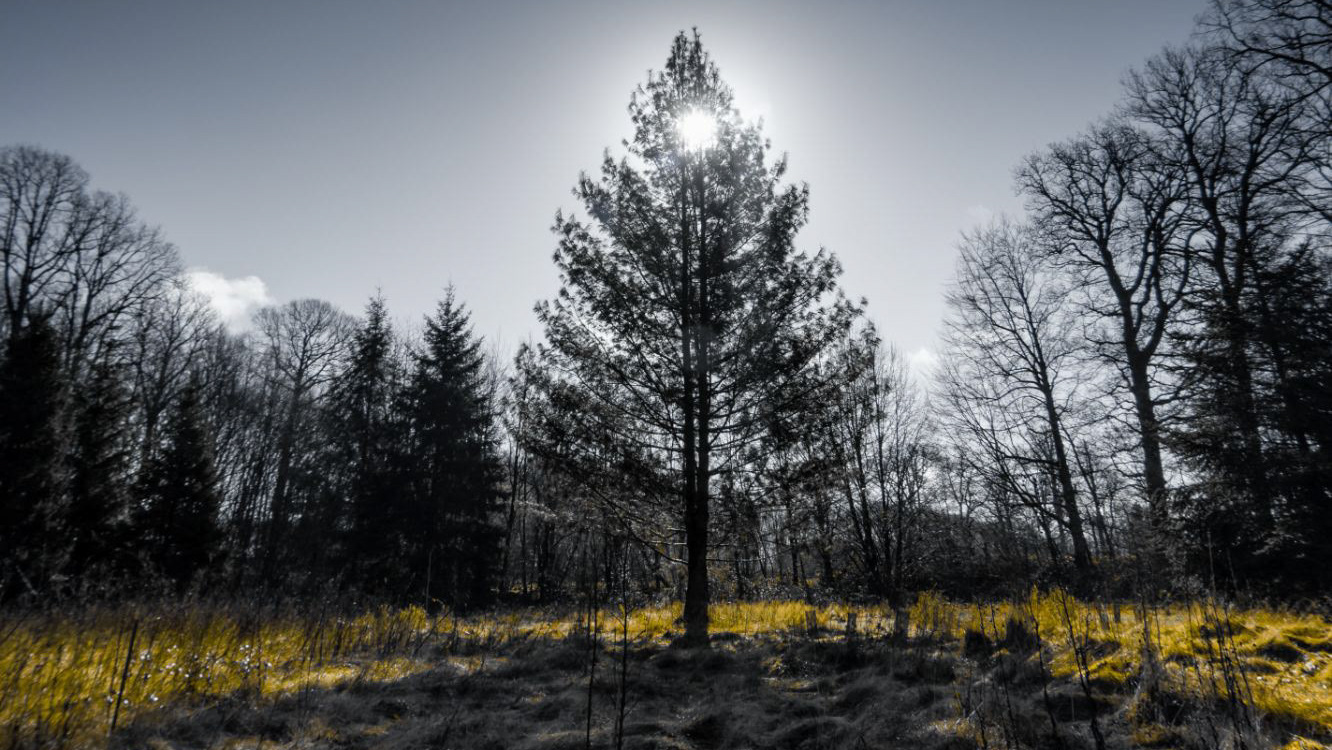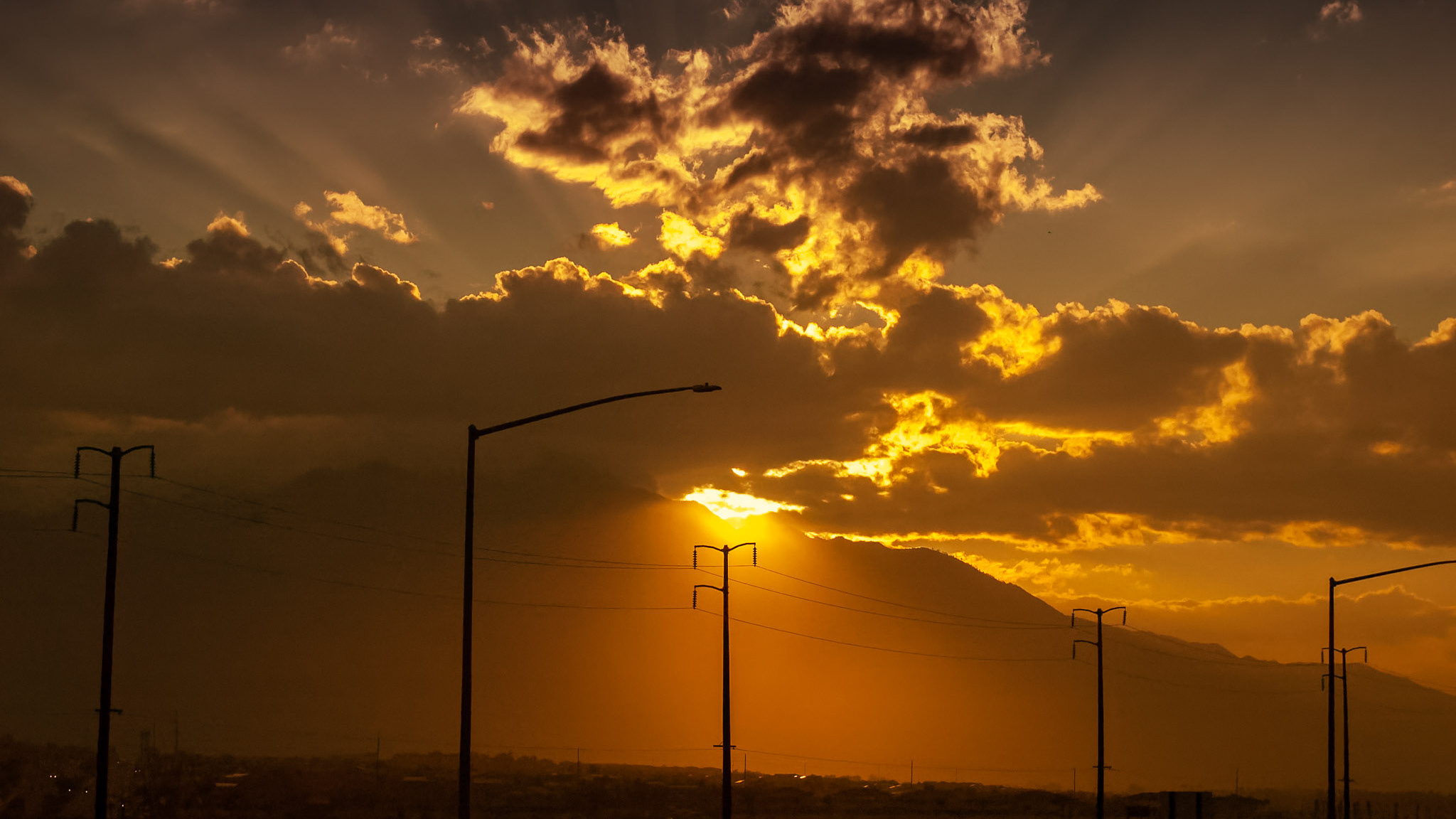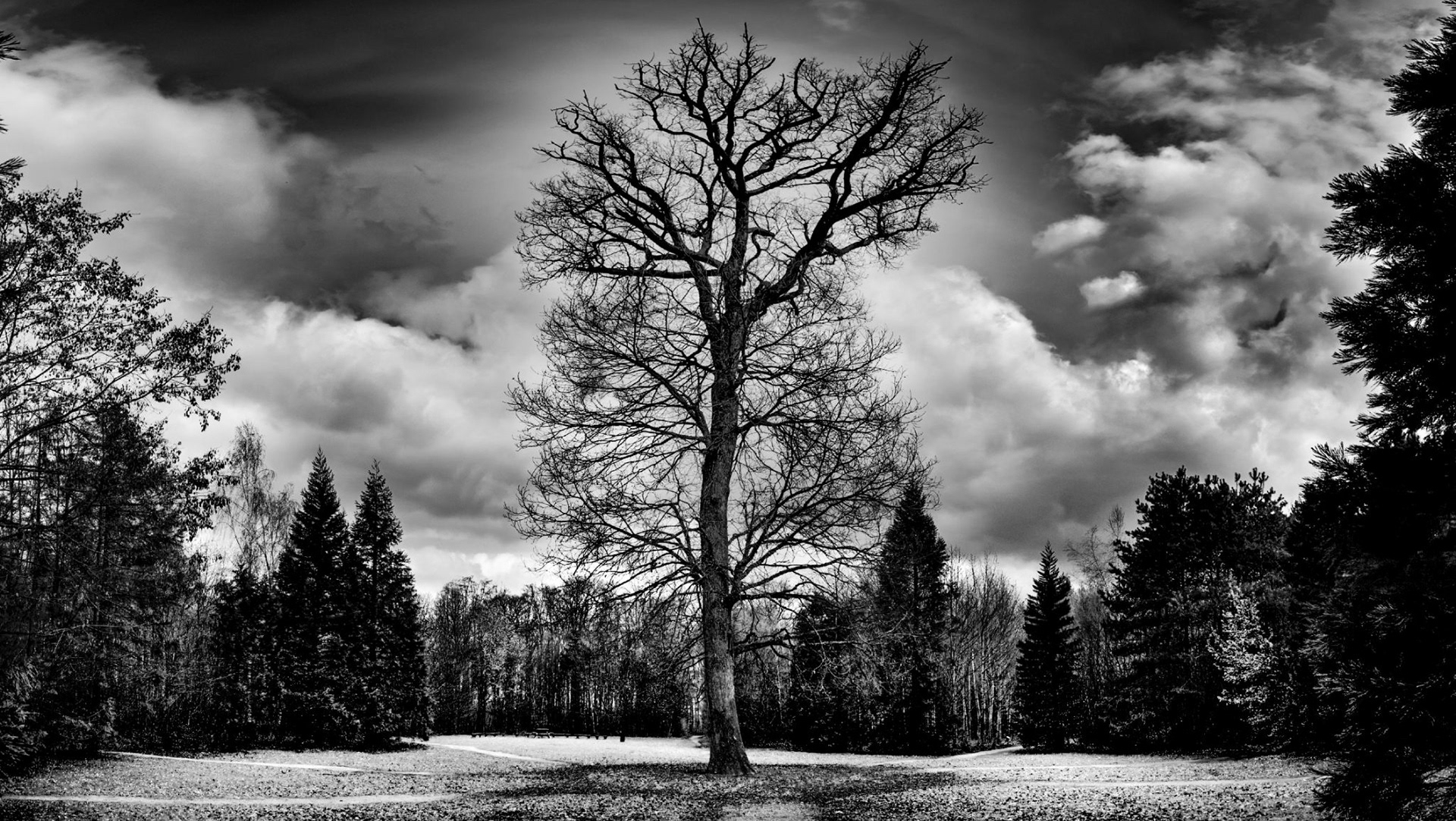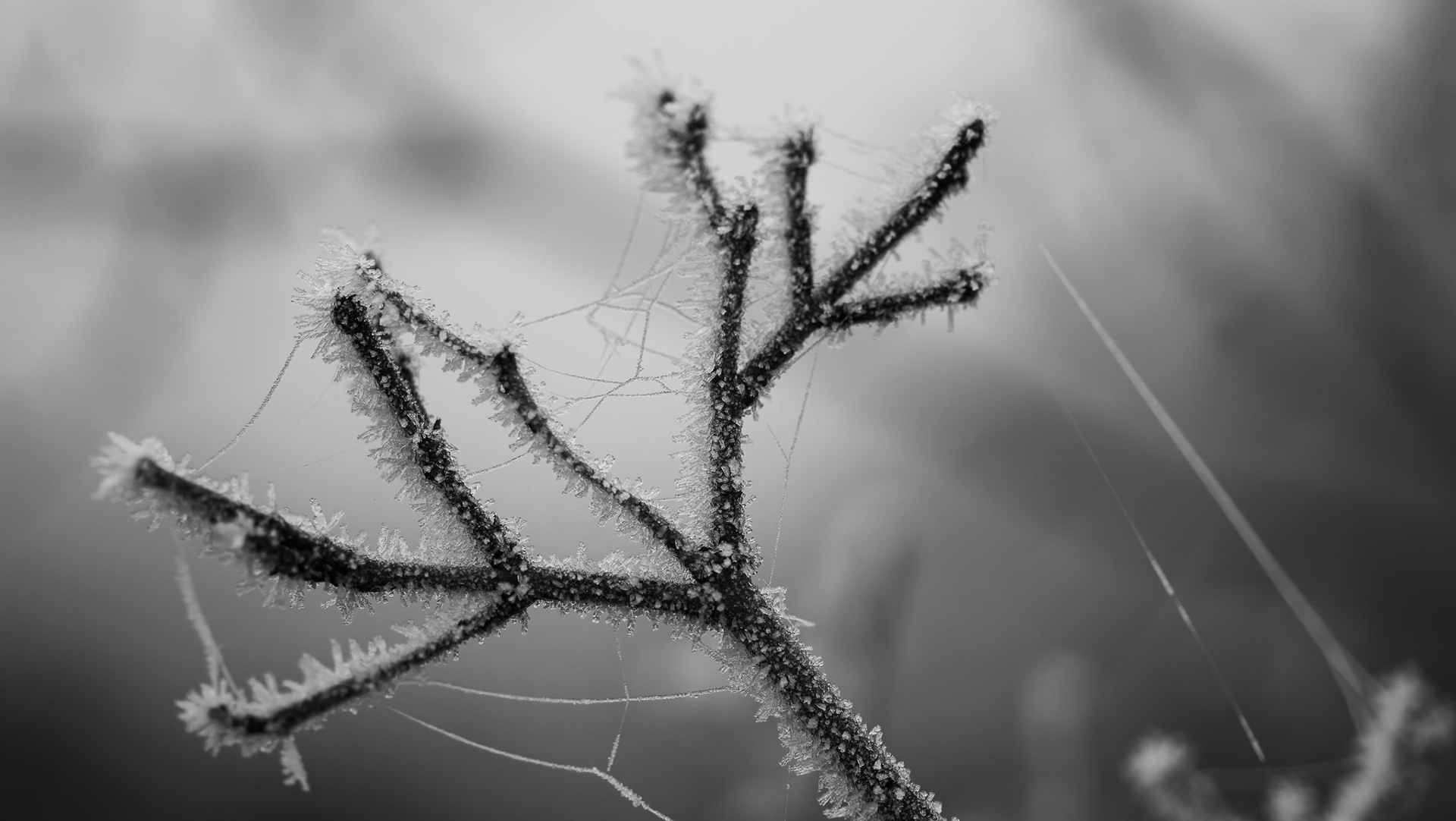A little while after sunrise, on a stormy day, the light is quite good to capture the tormented sky and clouds, and the dead city.
I decided to use an old tiny compact camera from Samsung: the WB210.
Just a soulless rotting place. Uninspiring but I'm forced to be inspired by something in that prison I'm stuck in. That is when an allegedly limited 1/2.3" sensor on a tiny light entry level compact camera comes in handy. It gives me something to do.
They say we see what we want to see. I see what I can see. I see ruins, derelict abandoned garbage. What else is there to see anyway.
The Samsung WB210 sees what I see too. 24mm, even 21mm, fitting in a little metal box not bigger than my pack of smoke is just perfect to capture the desolation. Dynamic range, noise, sharpness. Who gives a fuck. With some (I like to think clever) post processing, all these images are exactly how I wanted them to be. I see in lightroom, and on my test prints, exactly what I saw in my mind when I took those photos.
It's a jpeg only camera. But the way Samsung decided to NOT over process the files allows me to do in Lightroom exactly what I want to do. Do I miss RAW here? Yes, a little. But it is what it is.
The original files are quite clean, geometry correction is simple and hassle free, thanks to the almost distortion free lens at the wide end. Chromatic aberration and color fringing are well contained, there are a lot of details in the 14MP files.
Even highlights and shadows adjustments are not a pain in the ass. I shot at -1\/3EV to preserve the sky, I'm pretty sure it wasn't needed in the end. Old habits die hard...
The light was good for what I wanted to do, but objectively, there was not a lot of light. The WB210 didn't really struggle.
No traffic, no people, not even a stray cat. I can take all the time I need, standing on the road, to frame my next photo. It is a bit tedious on a small 3.5\" LCD screen that is not exactly super bright with limited angles of vision. Or maybe my old eyes don't really help.
Like all compacts, especially from 10 years ago, that little camera is not the fastest thing in the universe, especially when you want to adjust some of the very limited settings. Good thing I have plenty of time and no distraction. There are very few controls: shutter, zoom, on/off switch and playback. Everything else (and that is not much) is done with the tactile screen. That can be frustrating and slow when you don't have plenty of time. I had plenty of time.
Compromising is not my thing. But trying to do more with less is always something that fascinated me. Overcoming the limitations of a tool or finding creative ways to turn into my advantage what would be seen as flaws is something I like to do, especially in photography.
For me, creativity comes from limitations. I care less about some elusive and non definable technical perfection than about taking a photo that actually matches my mental image of reality.
Does that mean that in the end the tool: the camera and lens, are not important? Well, even if the specs sheet doesn't mean much to me, some tools are supposed to be better suited for some tasks. I wouldn't go bird hunting with that little Samsung compact. Or maybe I should try. It would be harder than with a fast noise free camera and long lens, but nonetheless interesting.
The objective technical details of the camera are just less important to me than the indescribable, not really quantifiable feeling of that camera: I take photos... I don't use cameras. I'm a photographer, not a camera operator.
At the end of that 5-6 miles walk, and a hundred photos taken,the battery was still good. I'm pretty confident I can take 300 photos with that battery. Not bad for that kind of tiny old camera. Turning it on and off and on again is fast enough, and the camera fits in a pocket. I can't do that with a D6.
I enjoyed shooting the little WB210. I actually enjoy all the process, from mental visualization, framing, shutter clicking to the final digital development.
But I don't enjoy this place.
